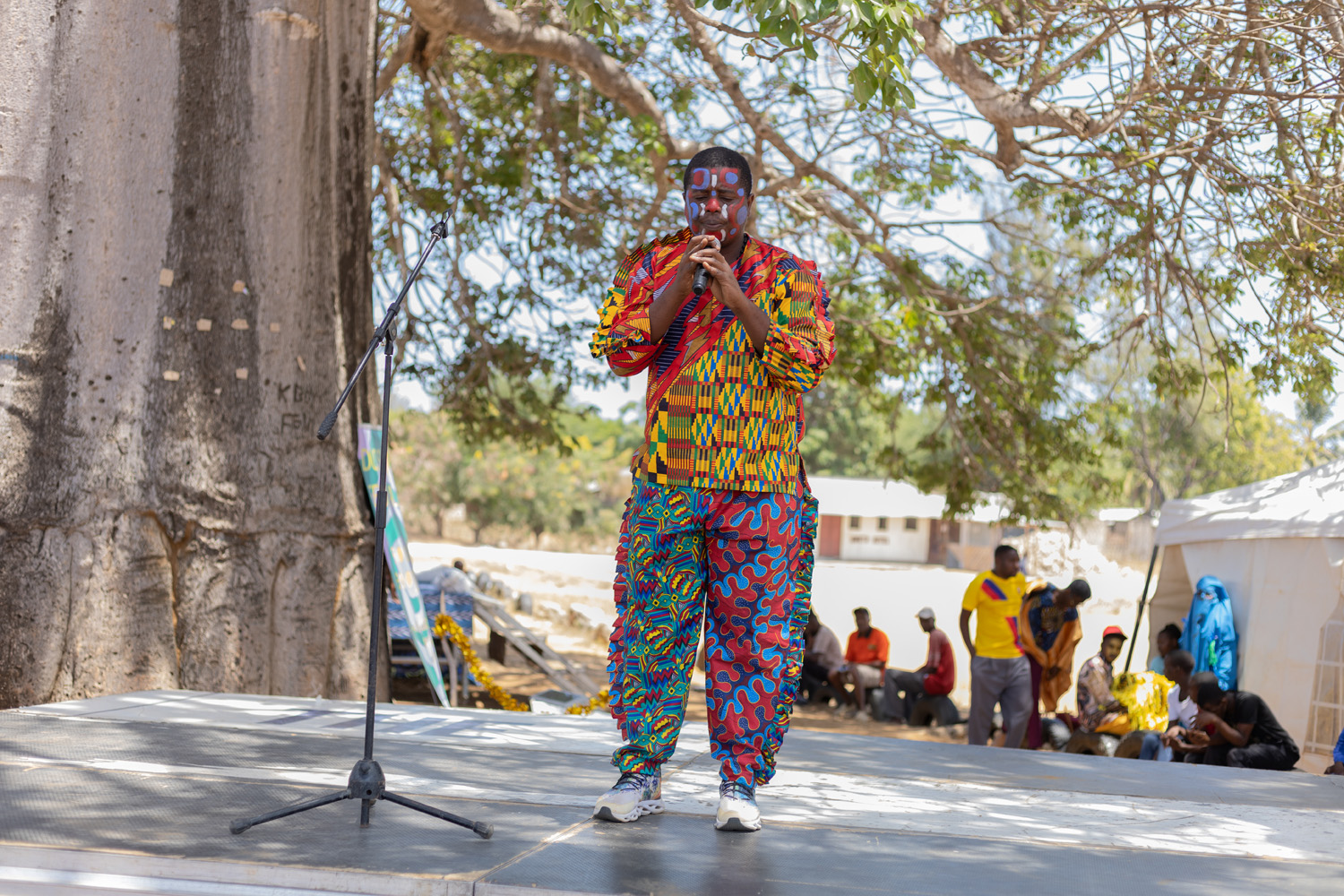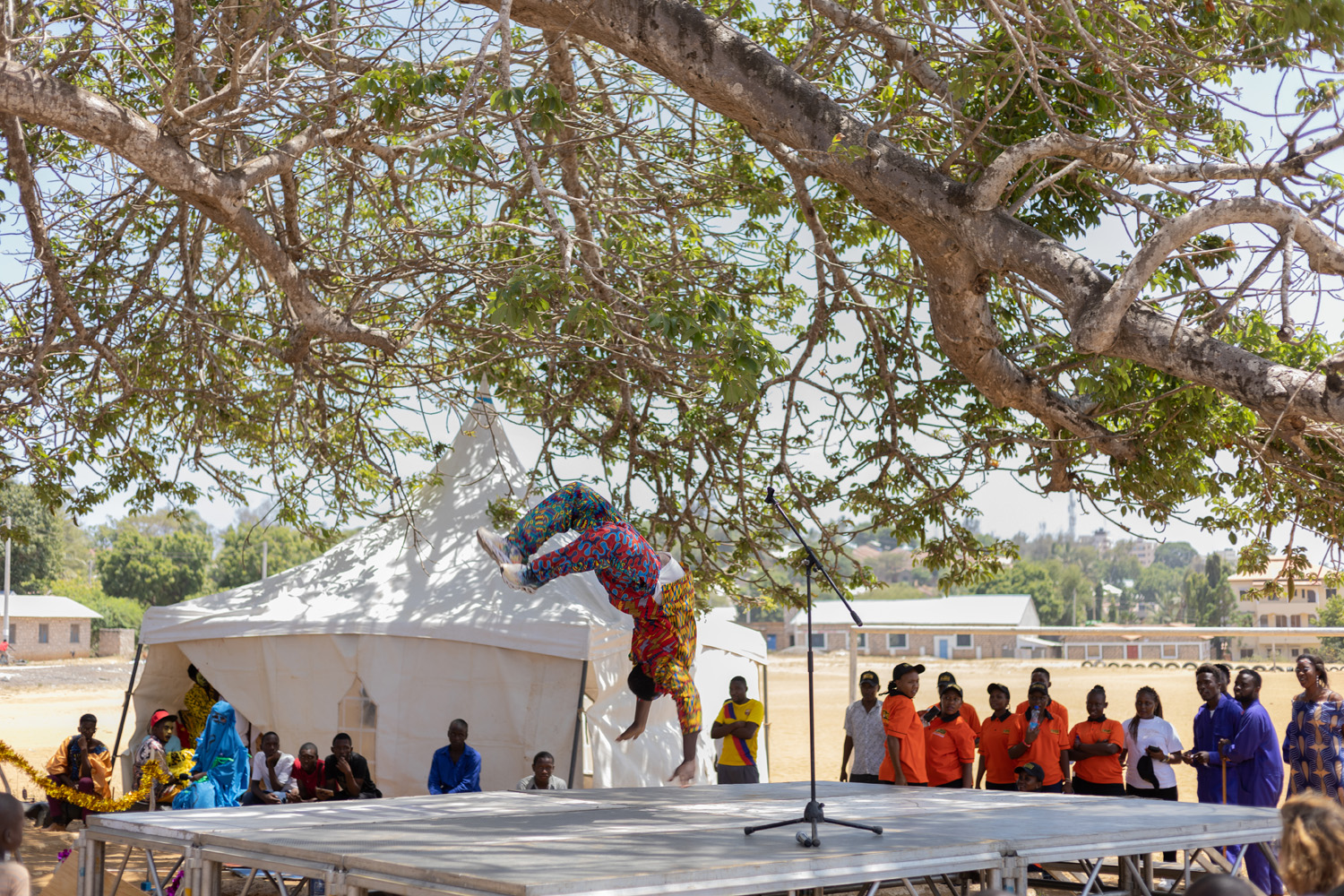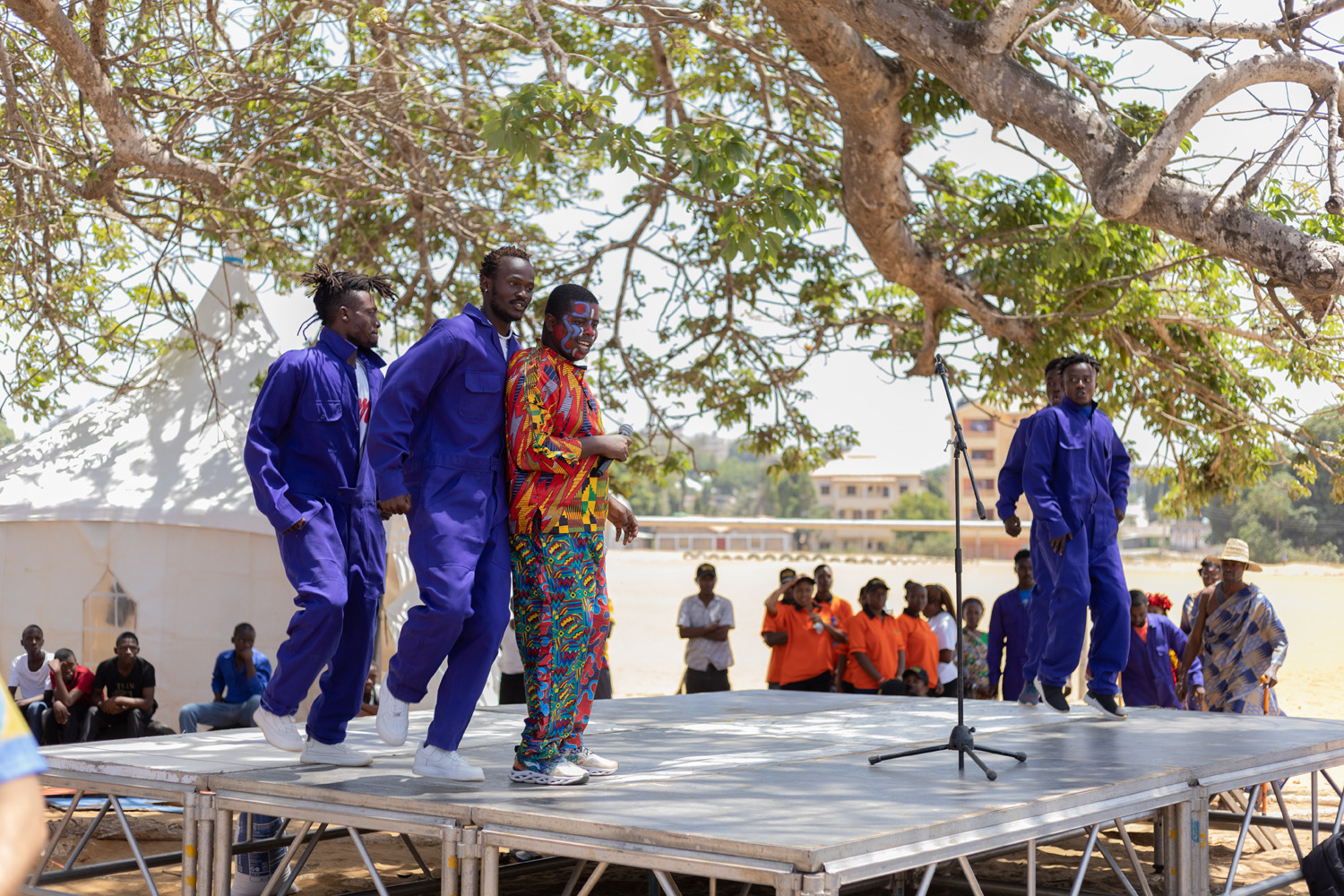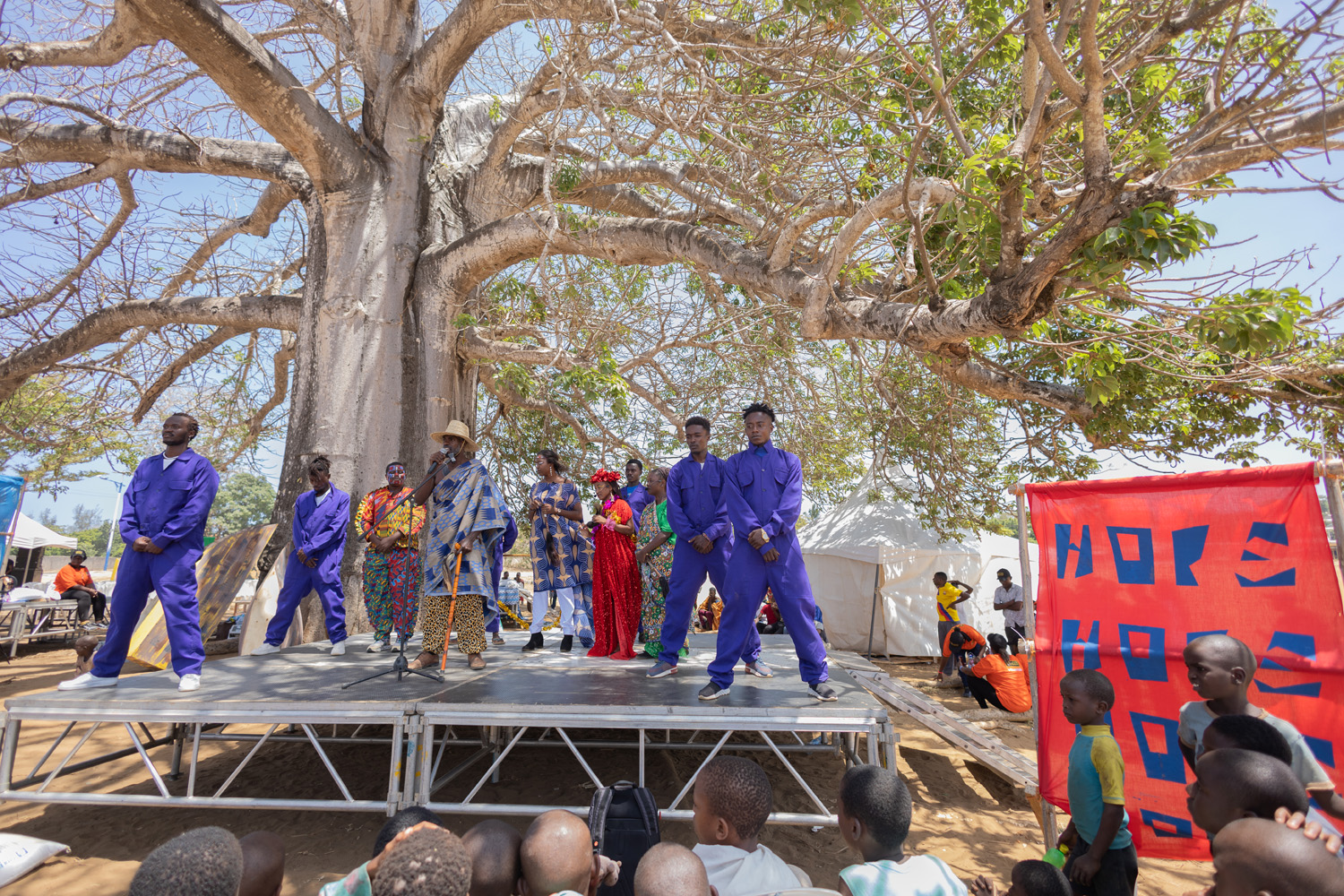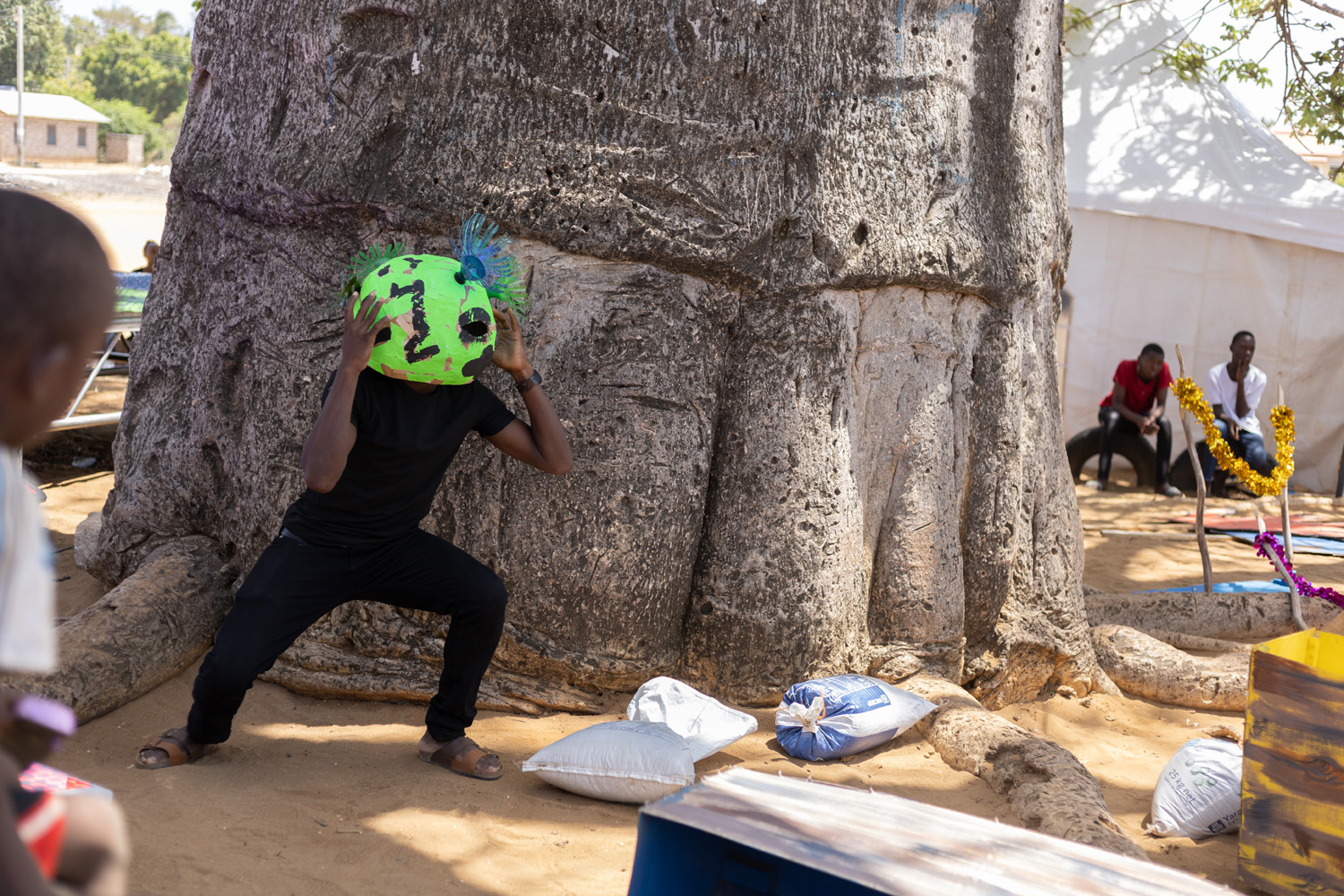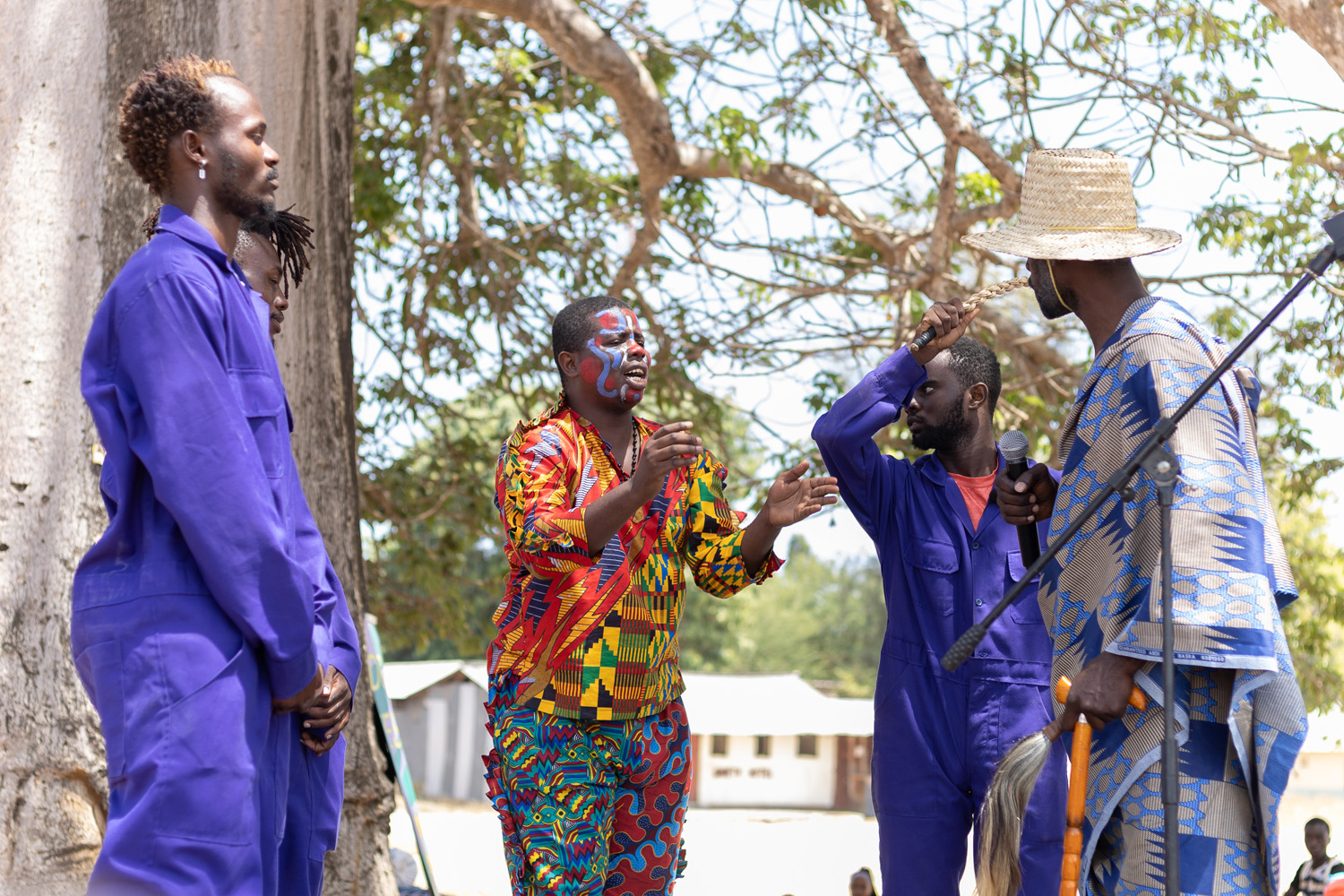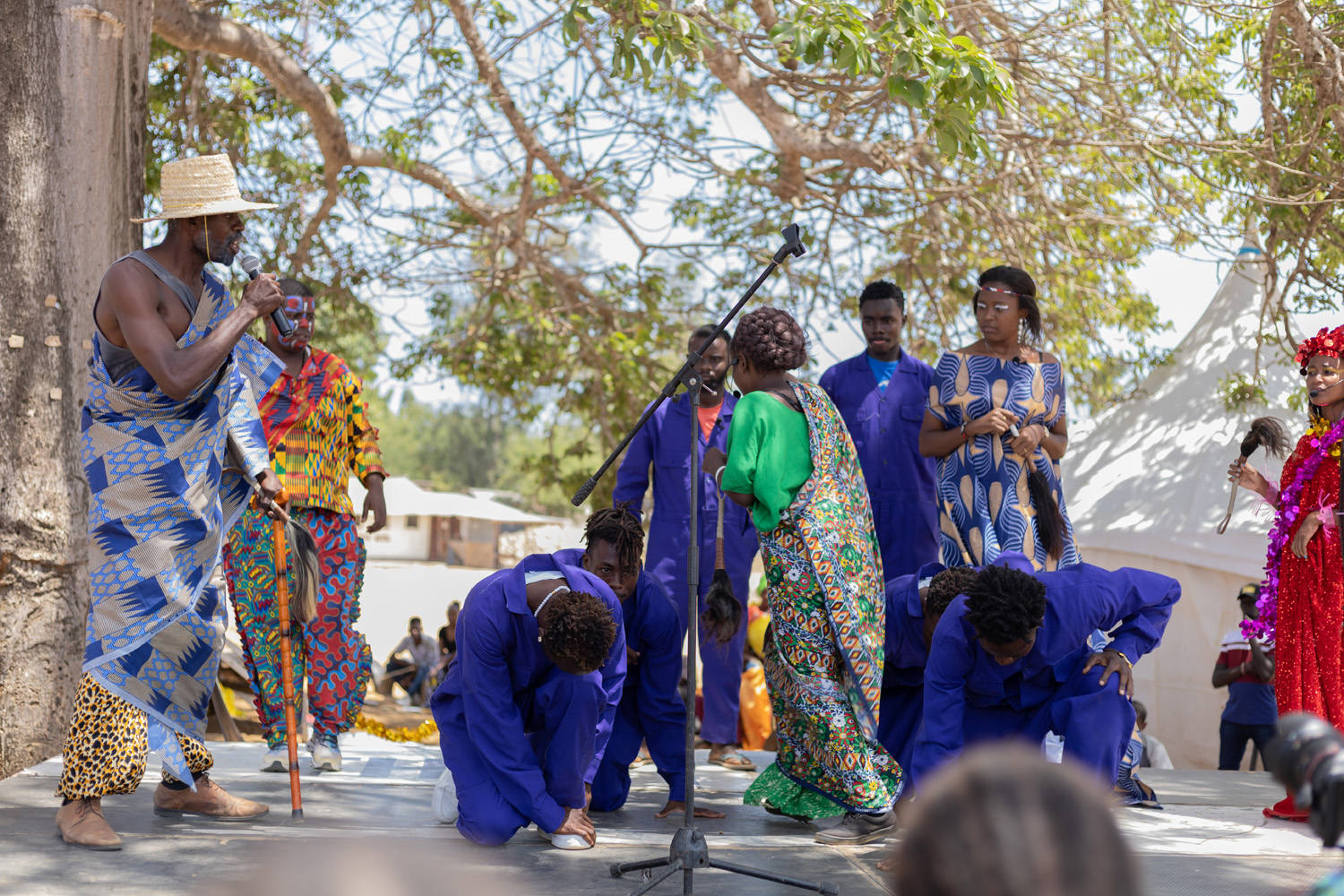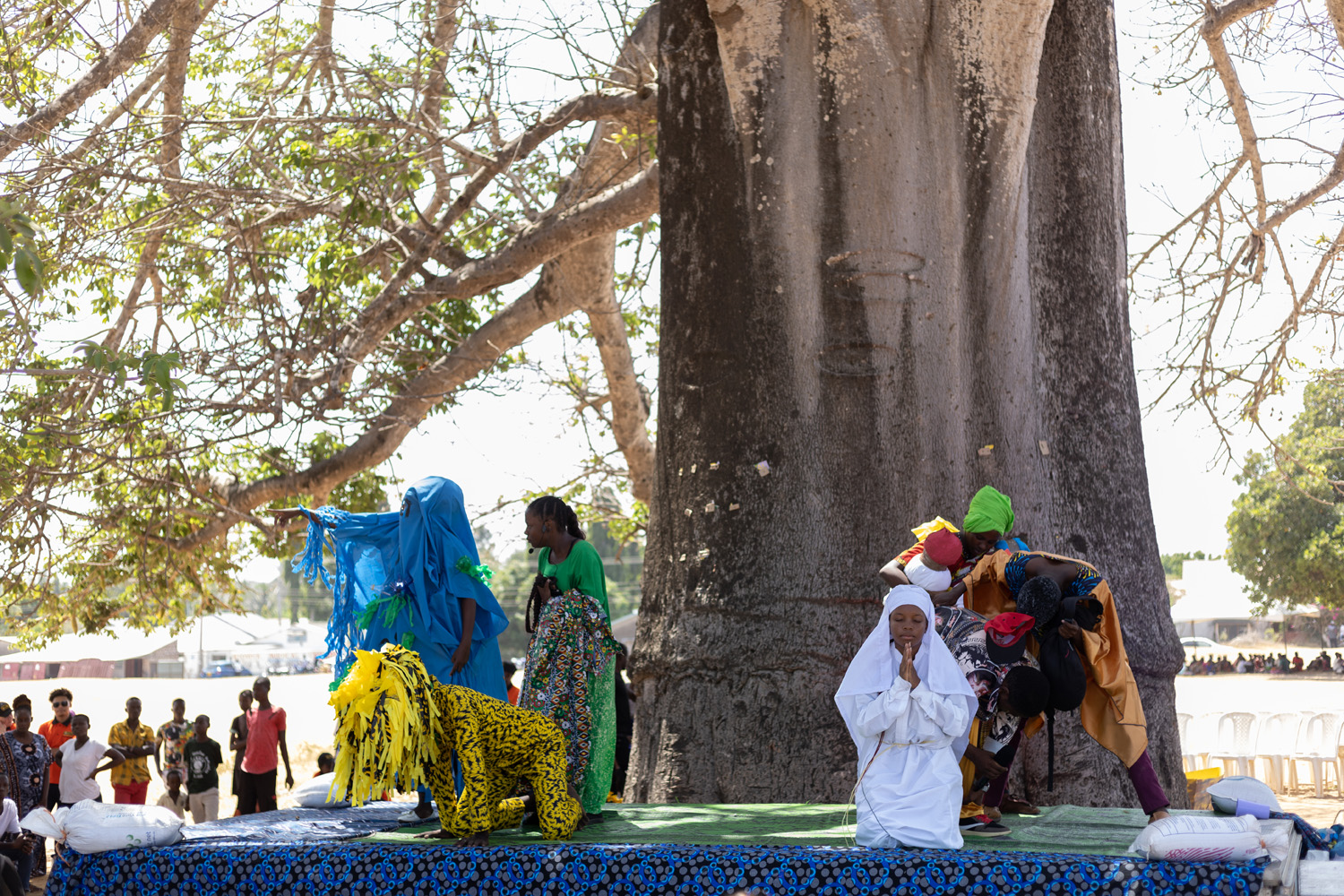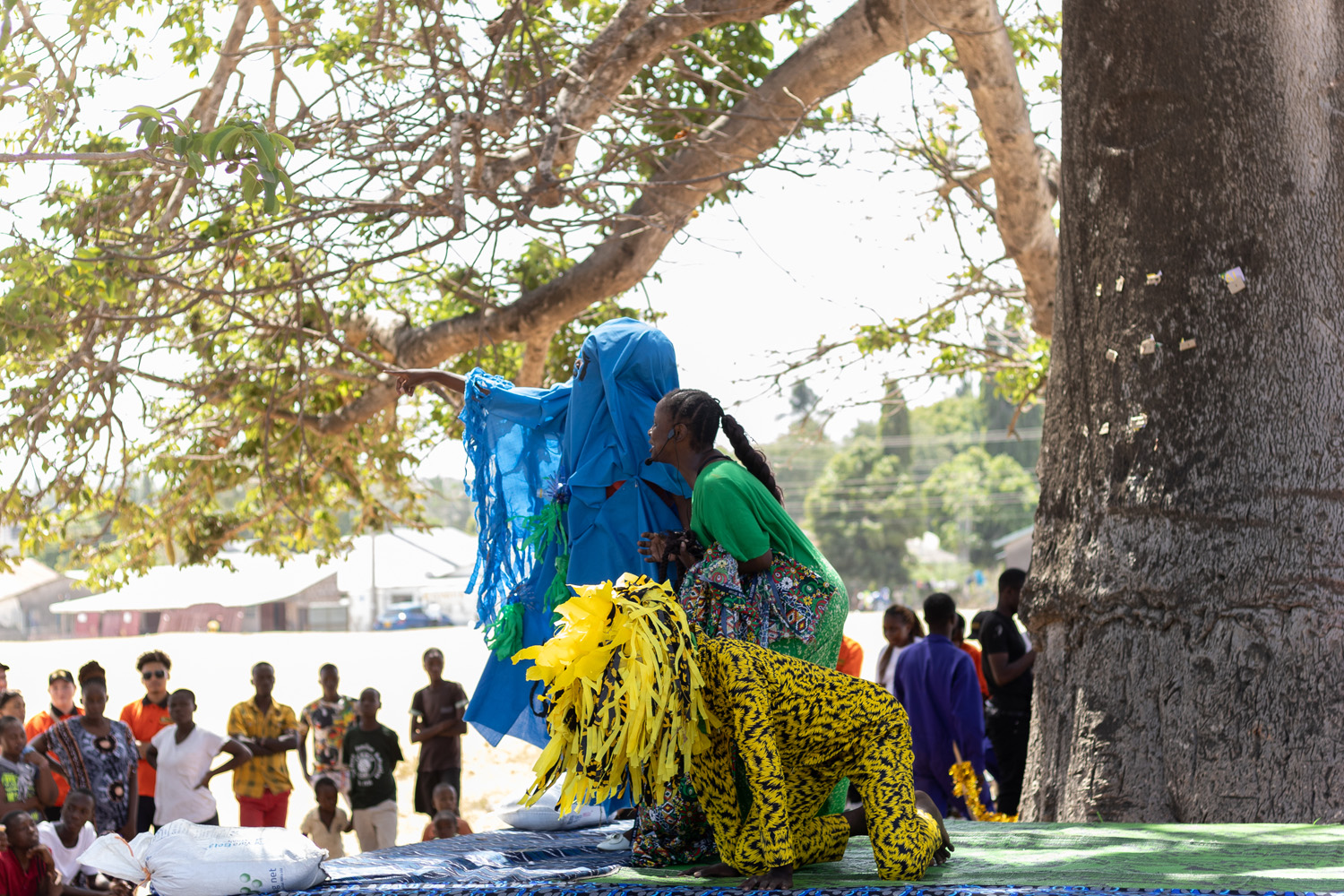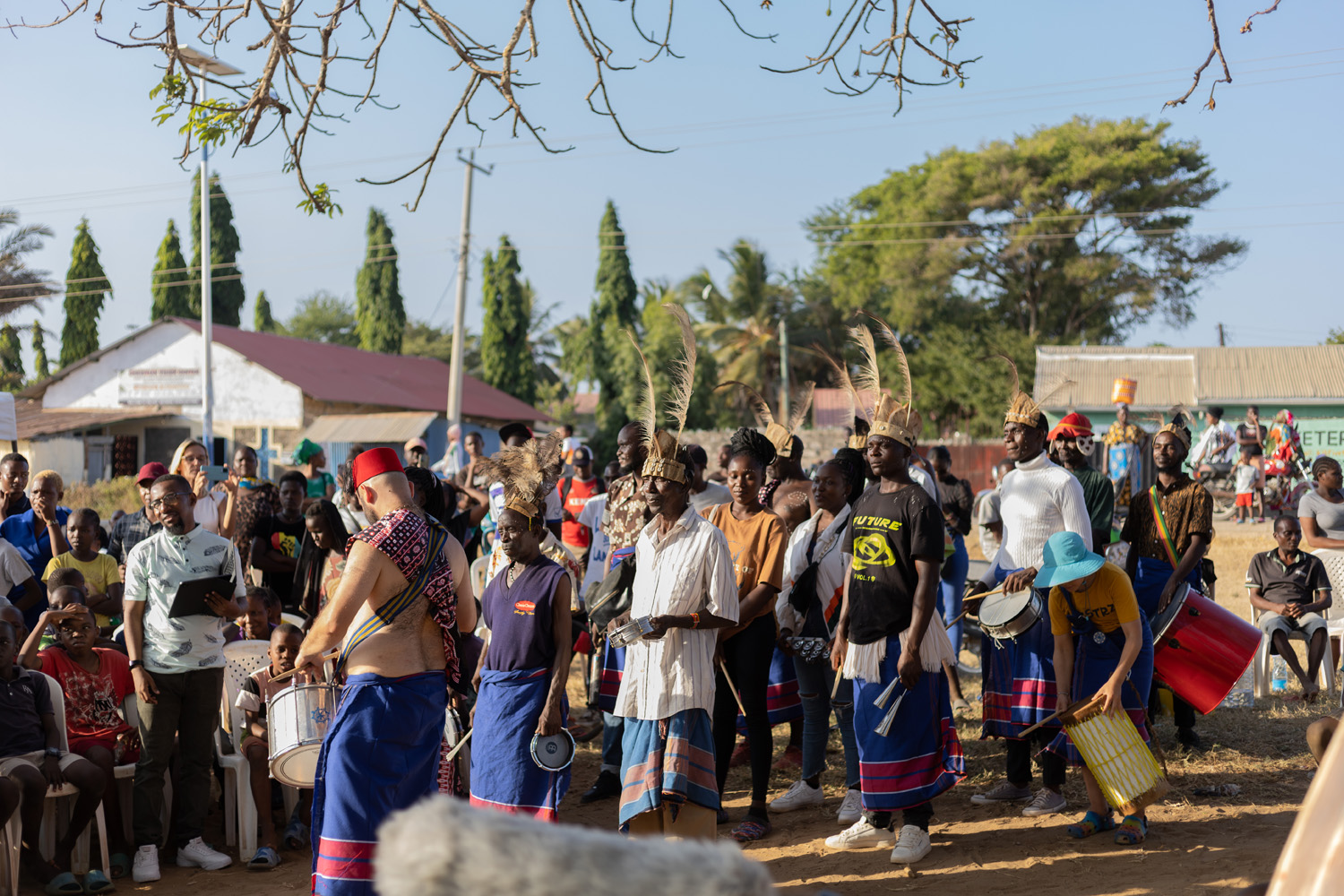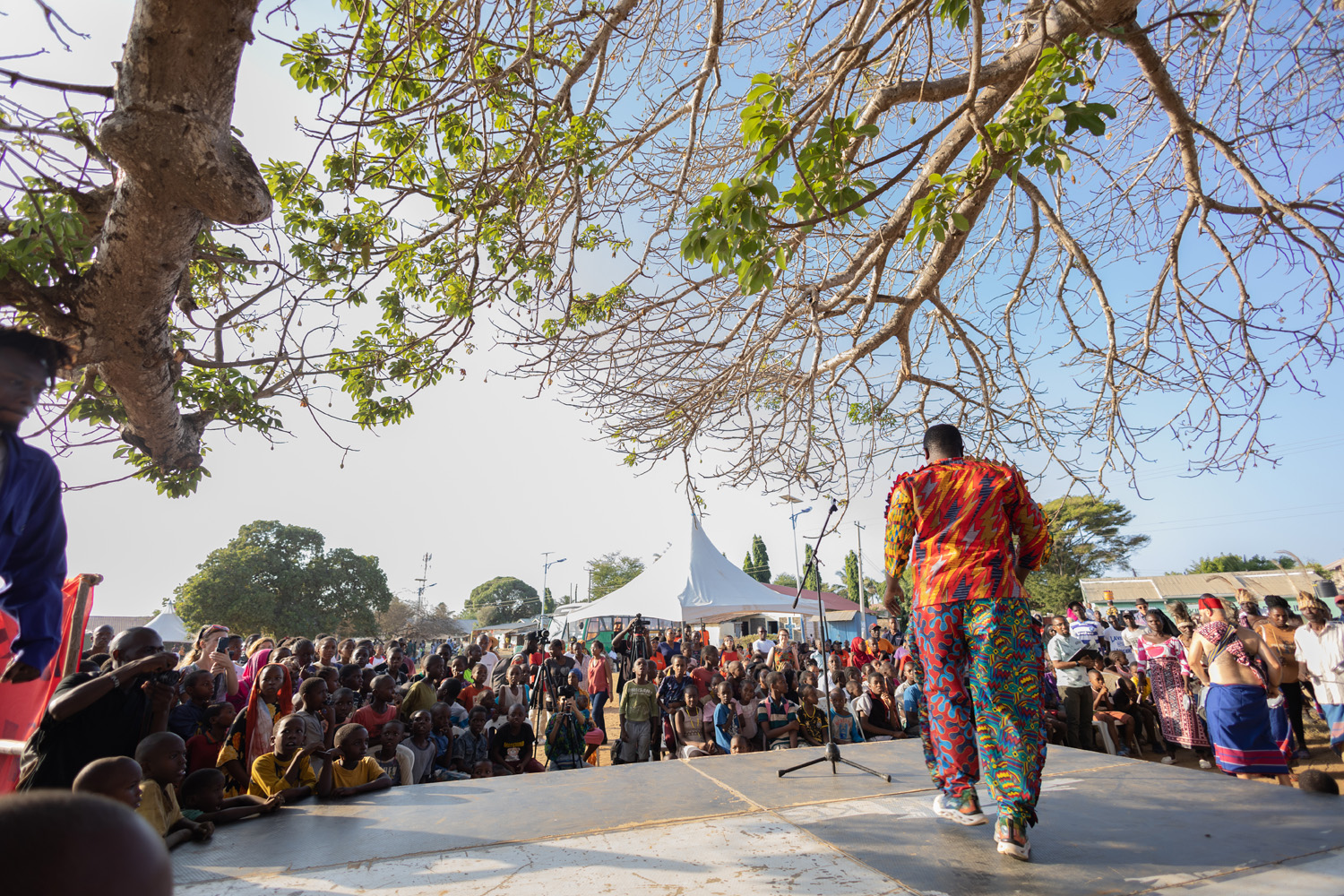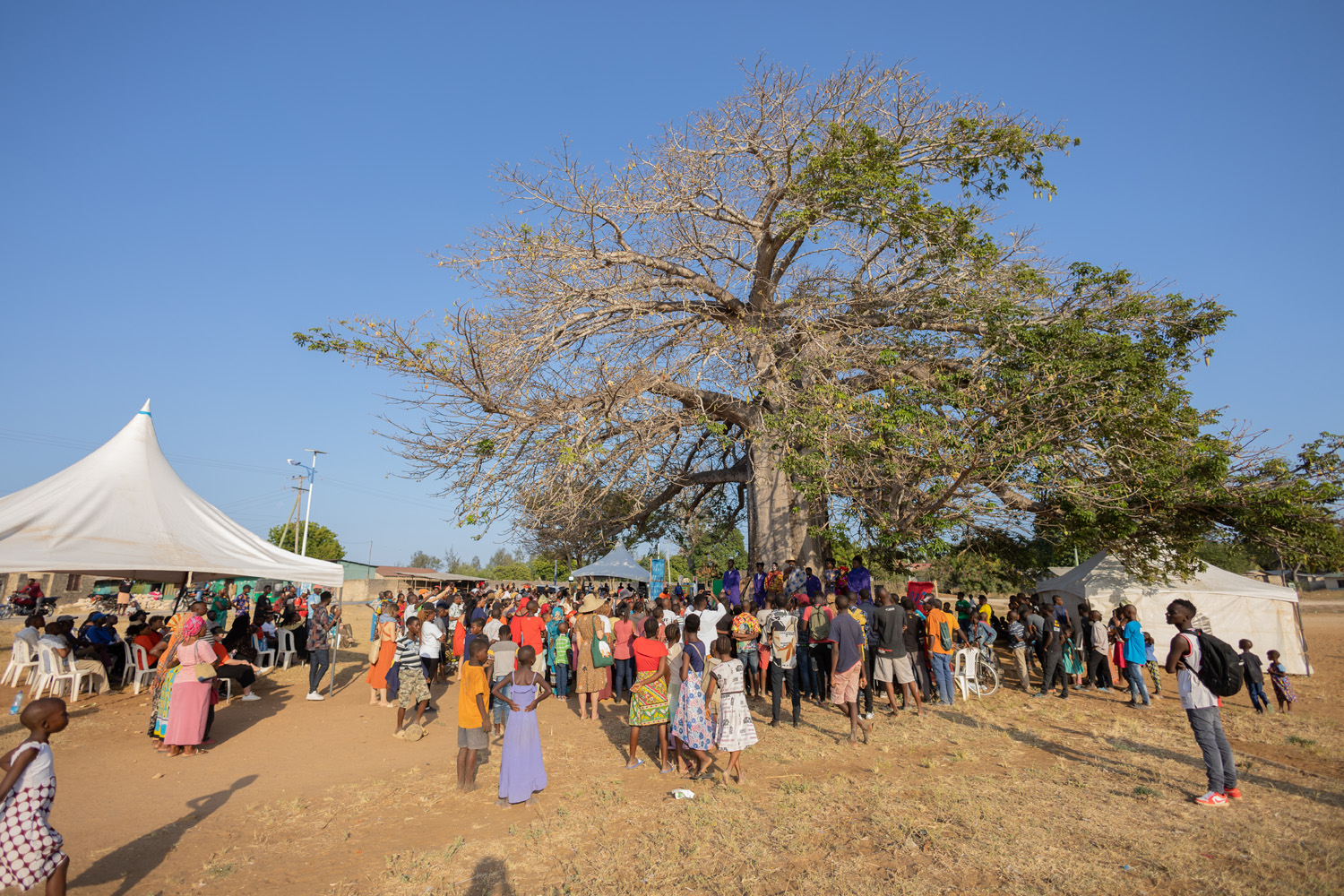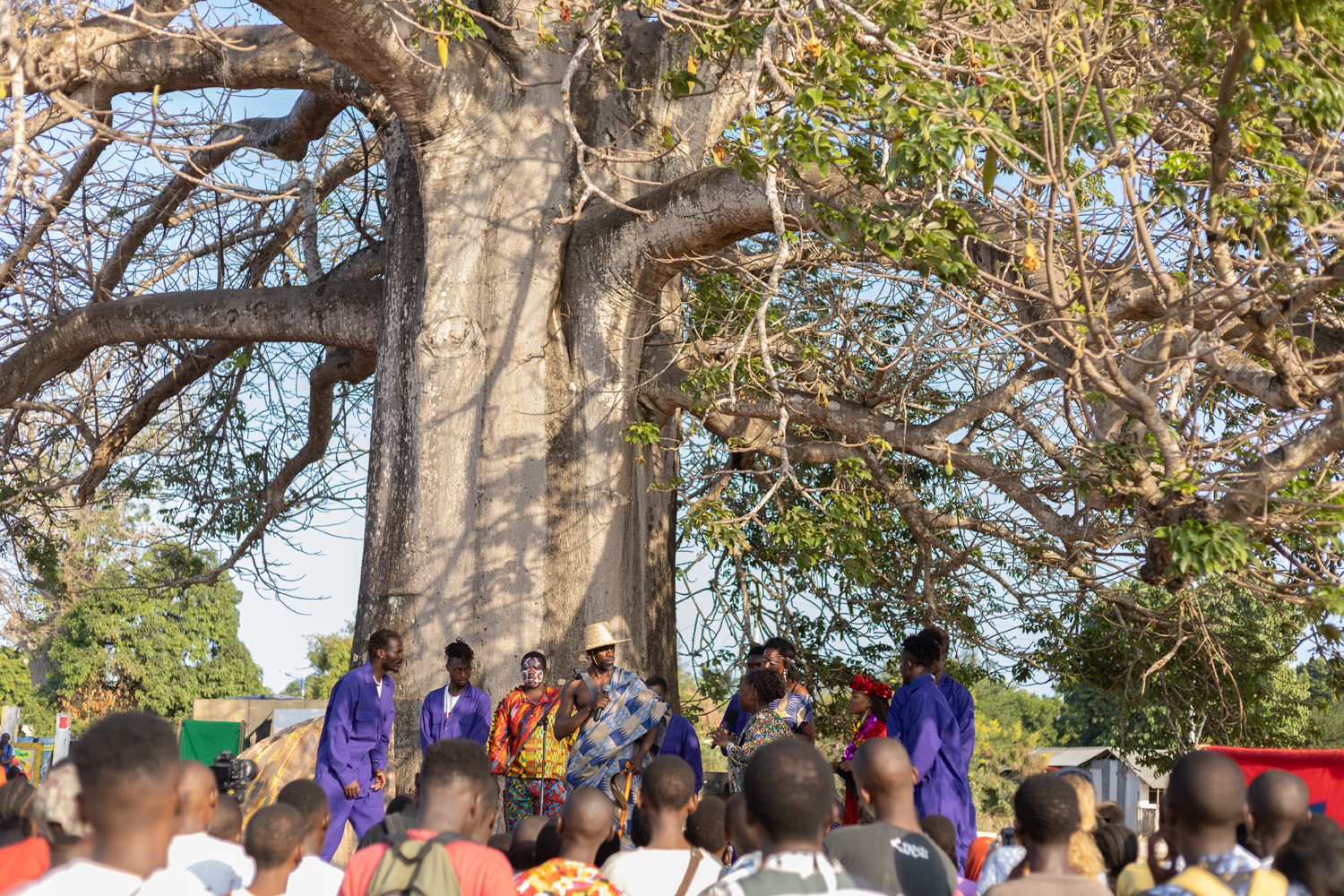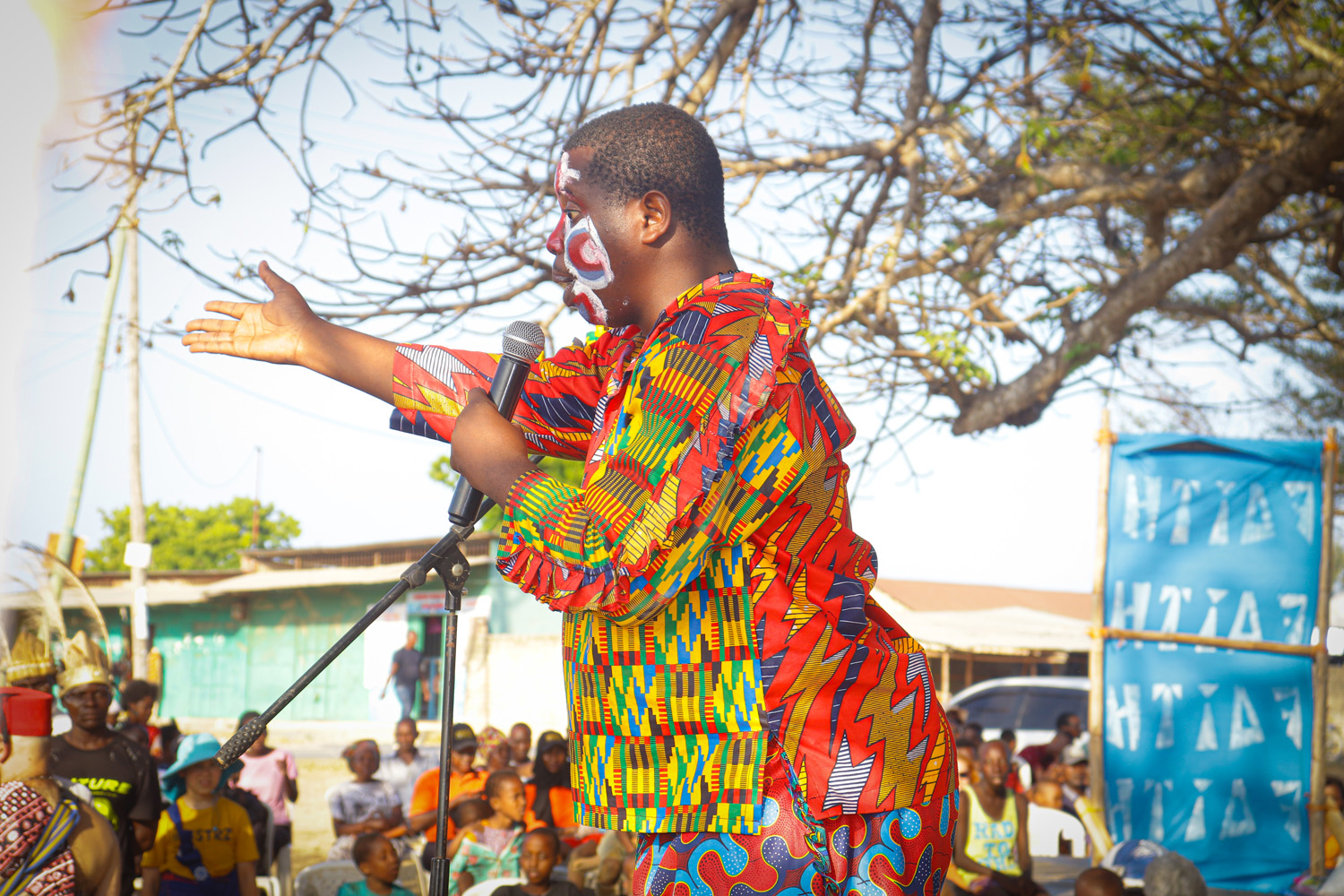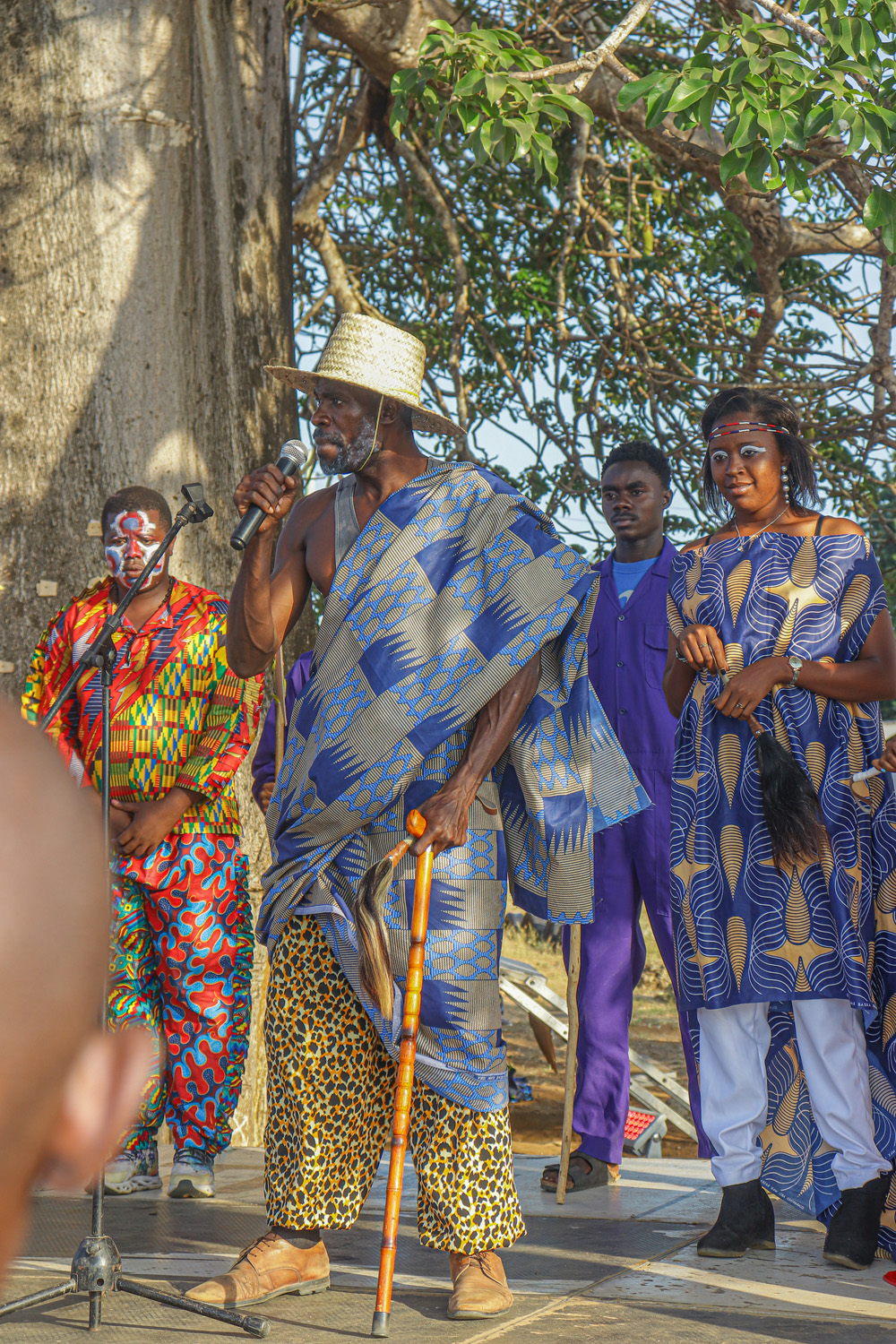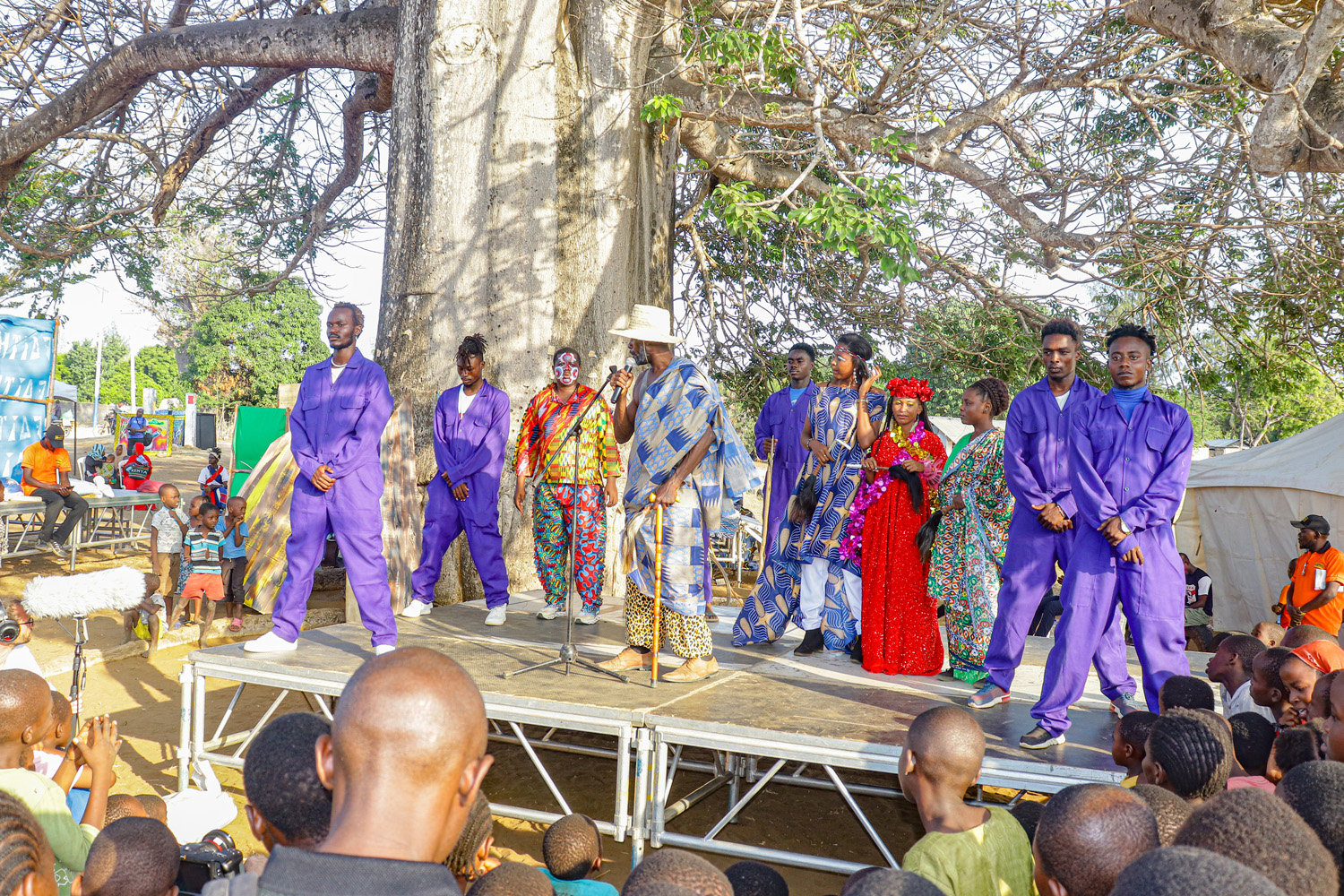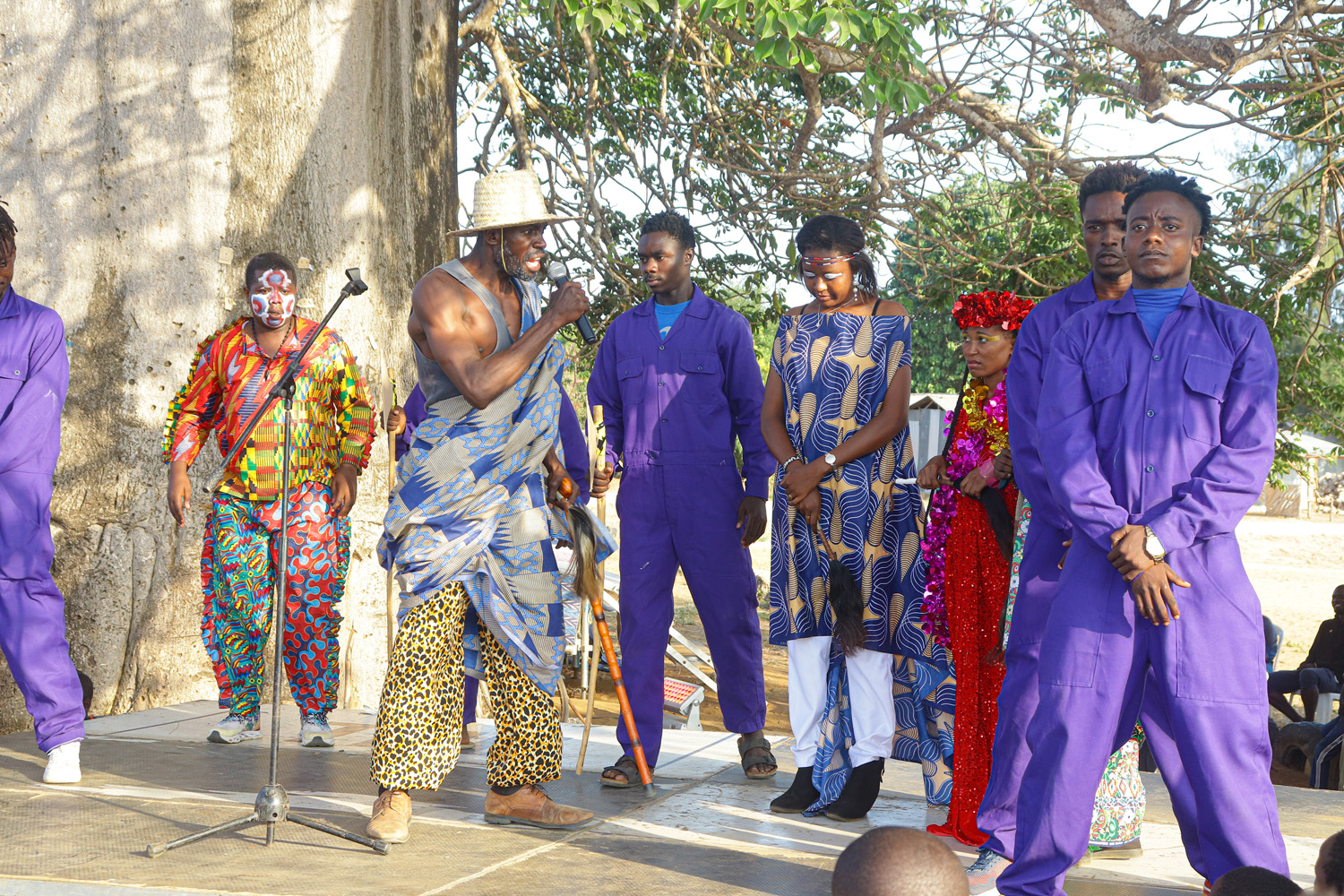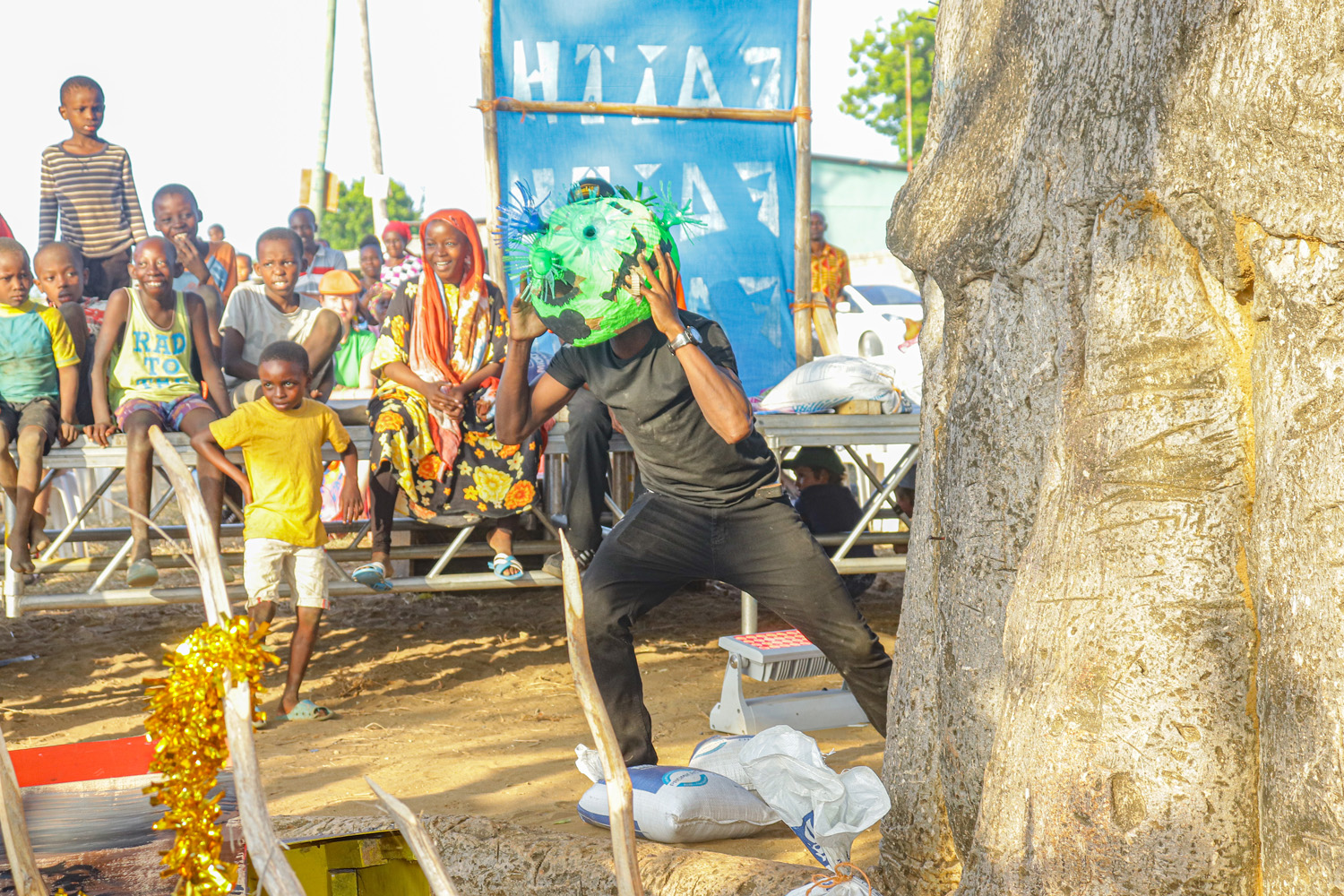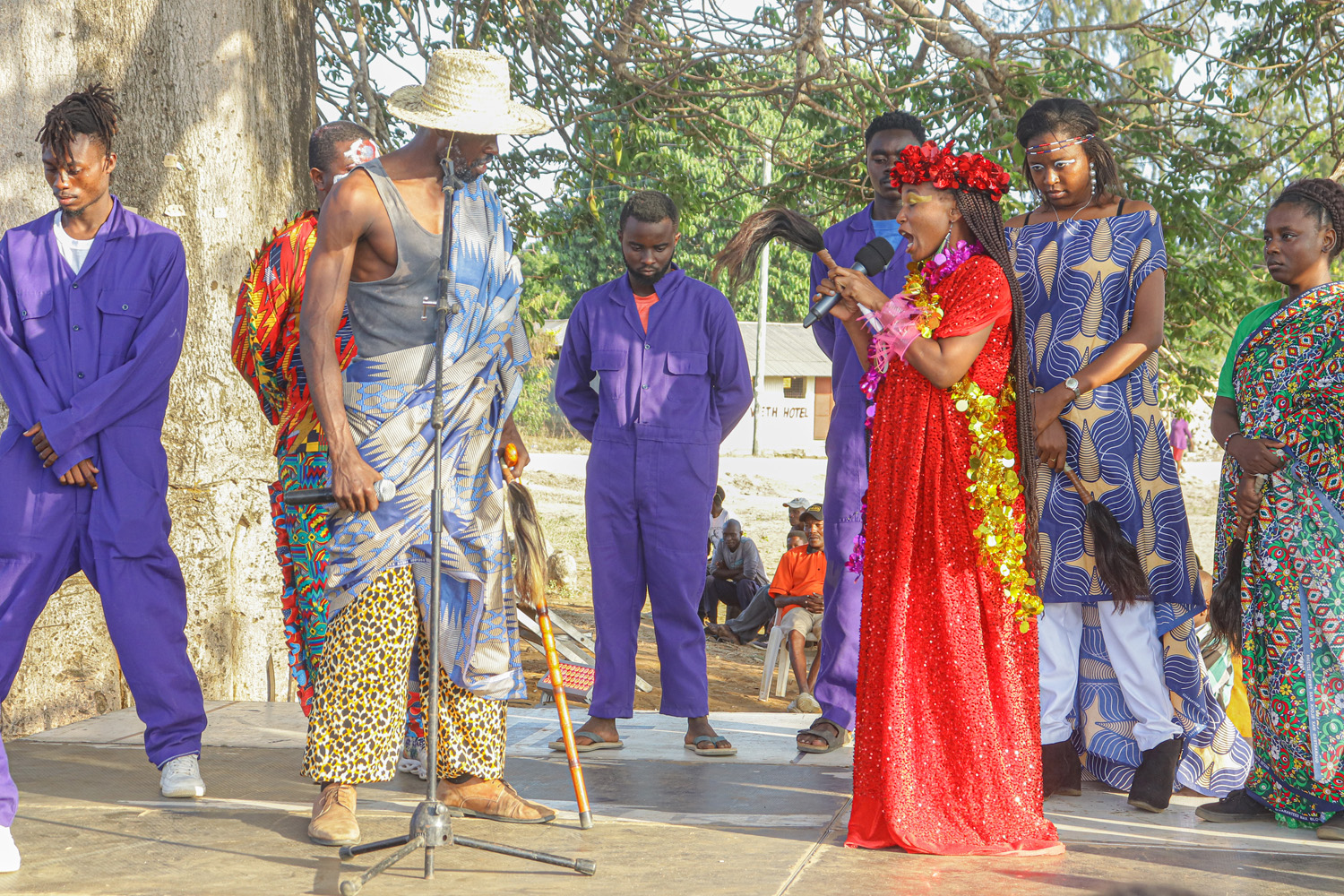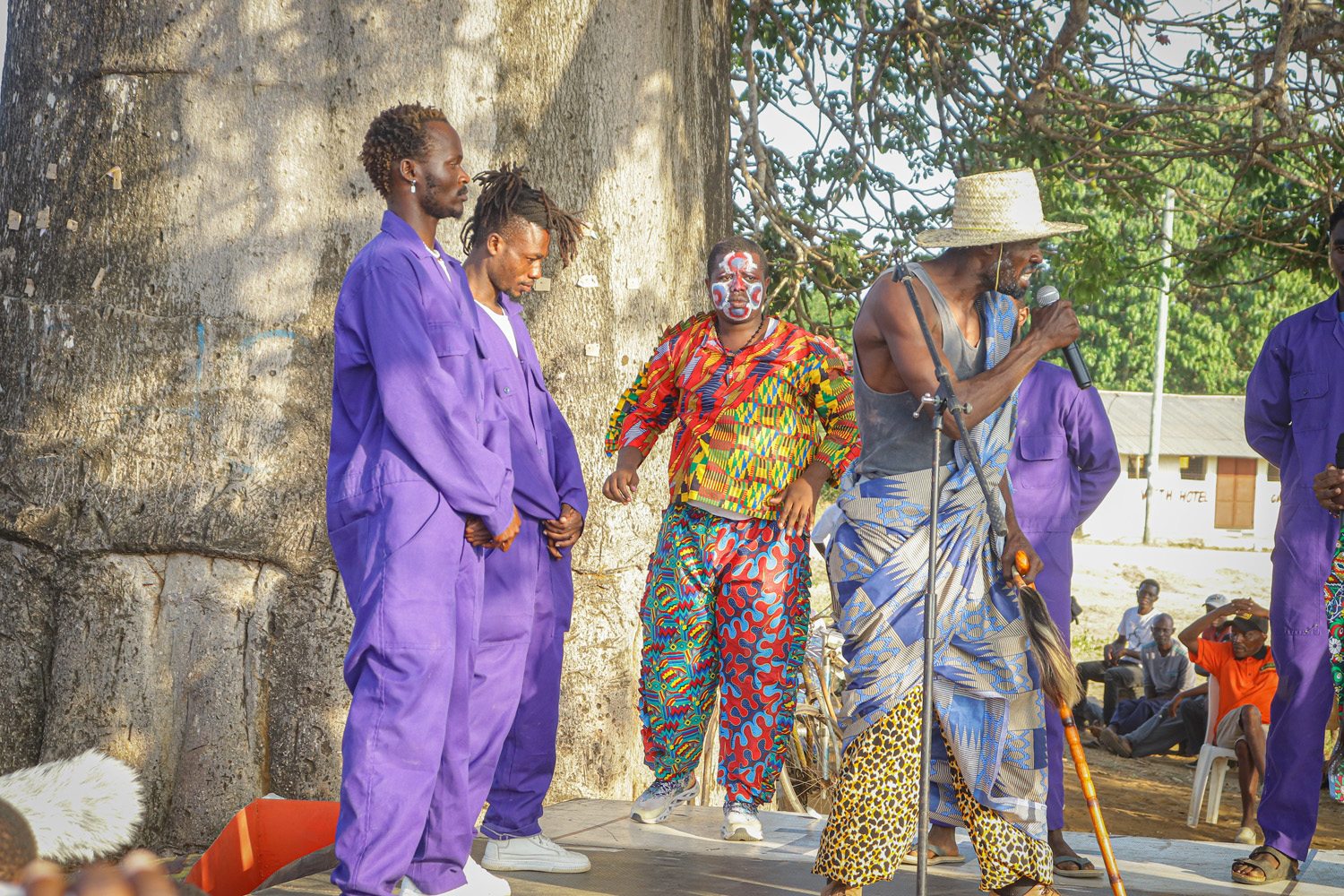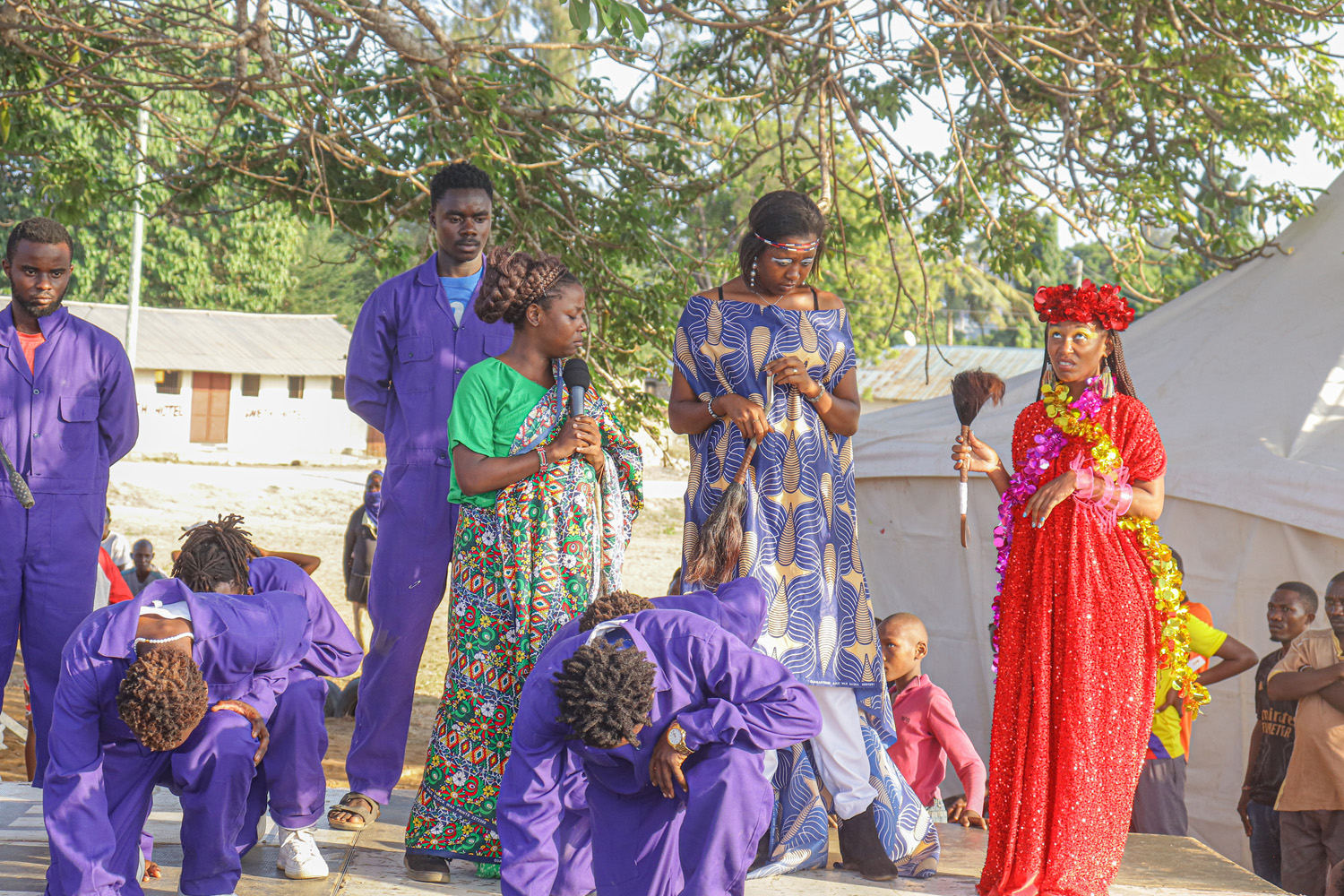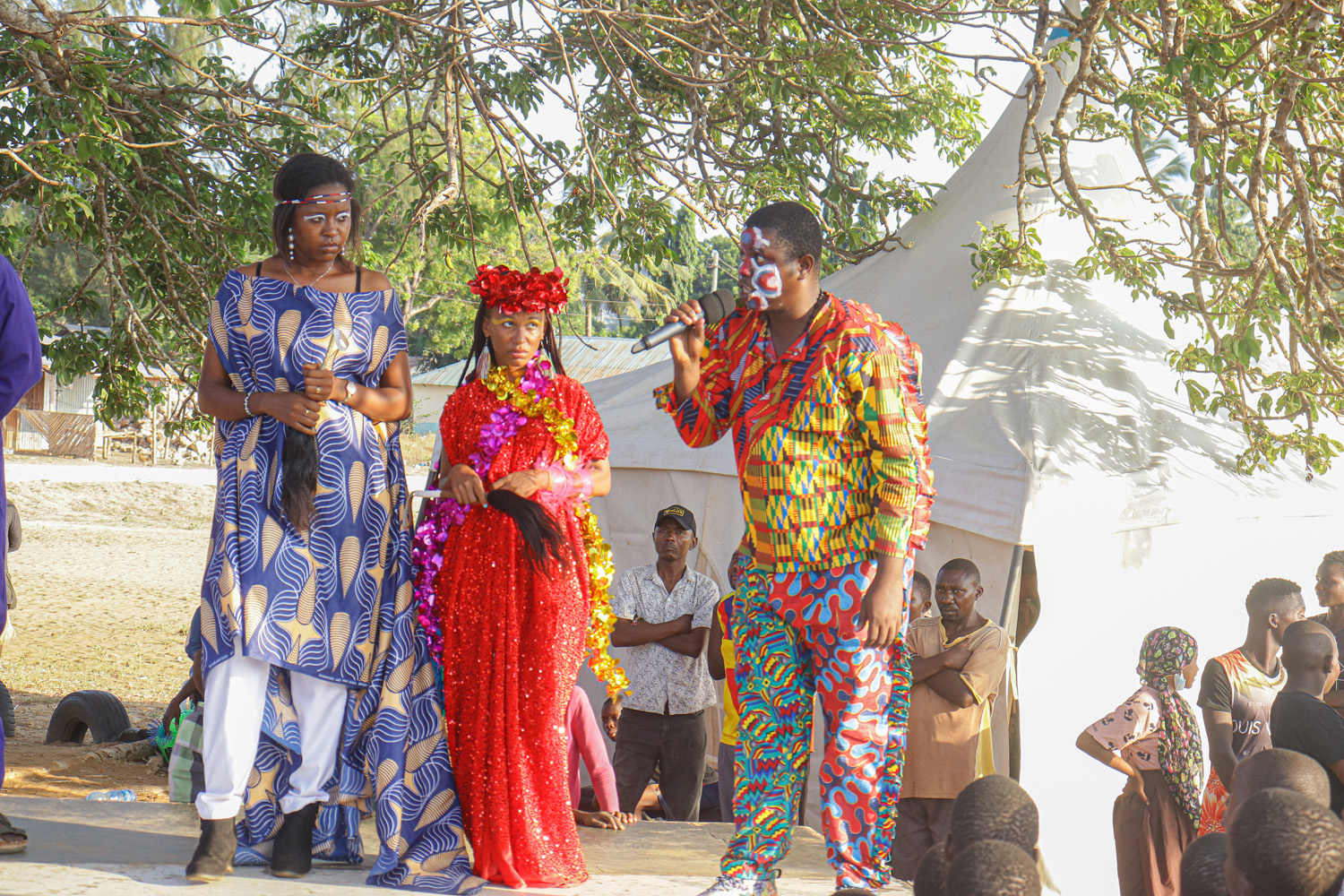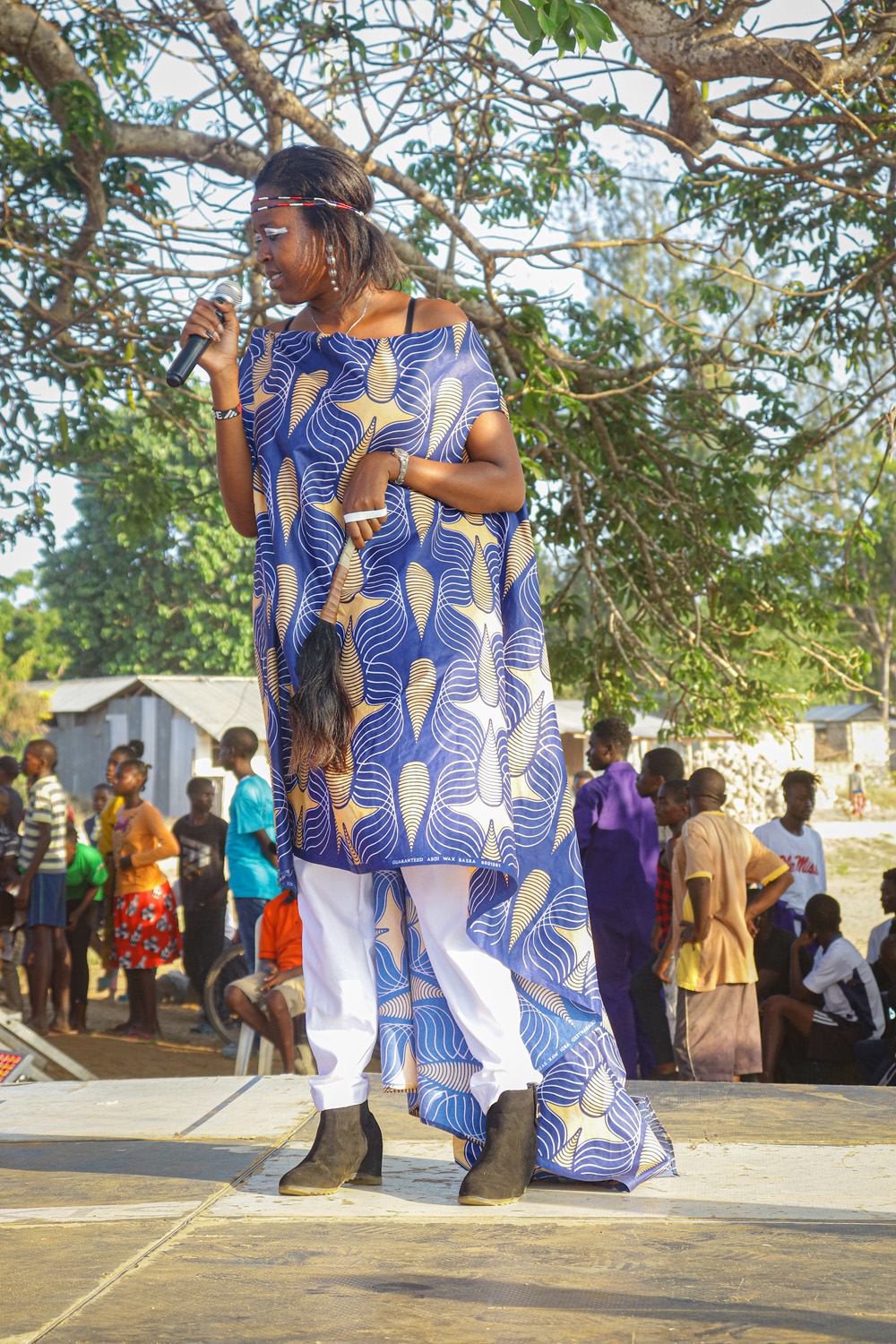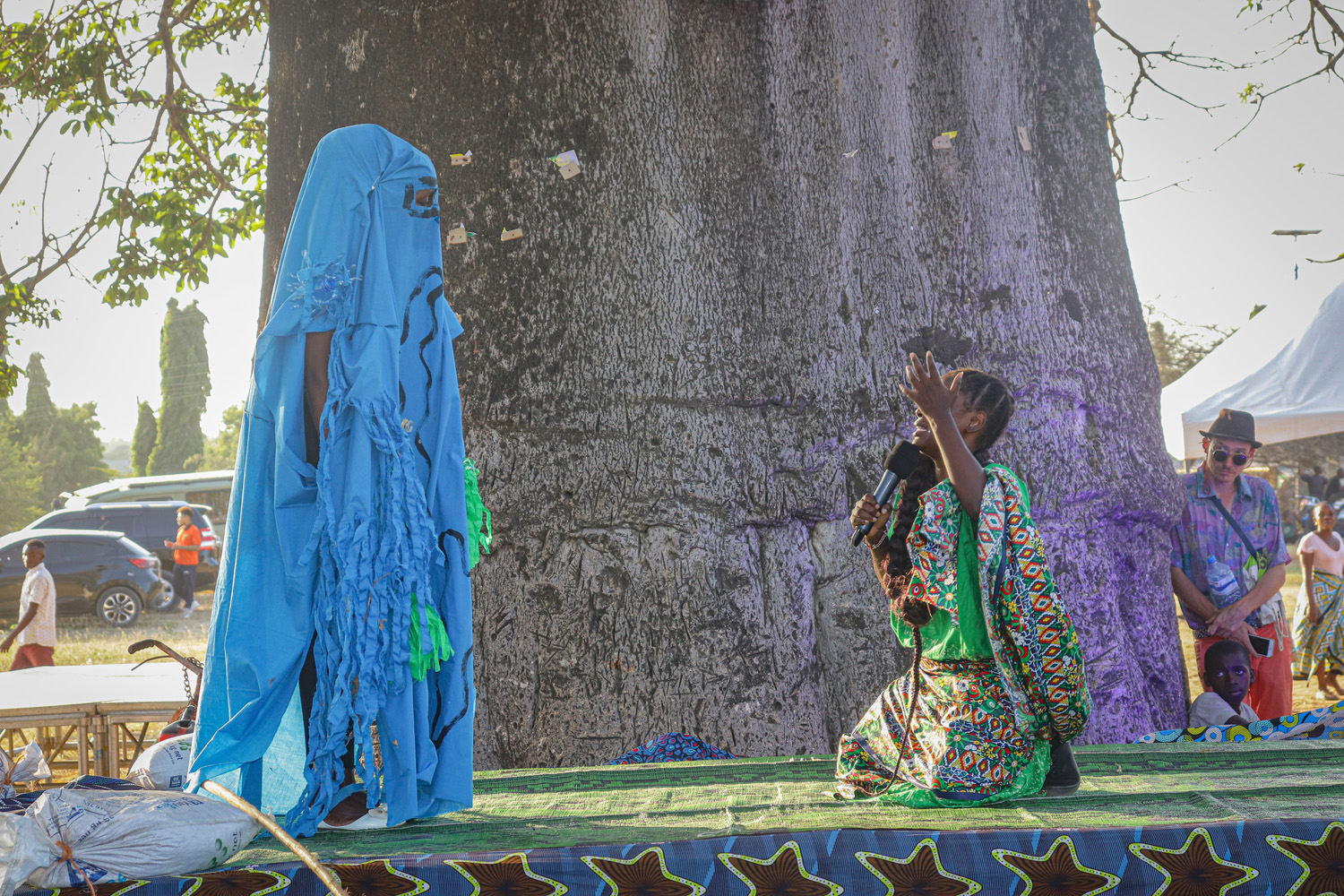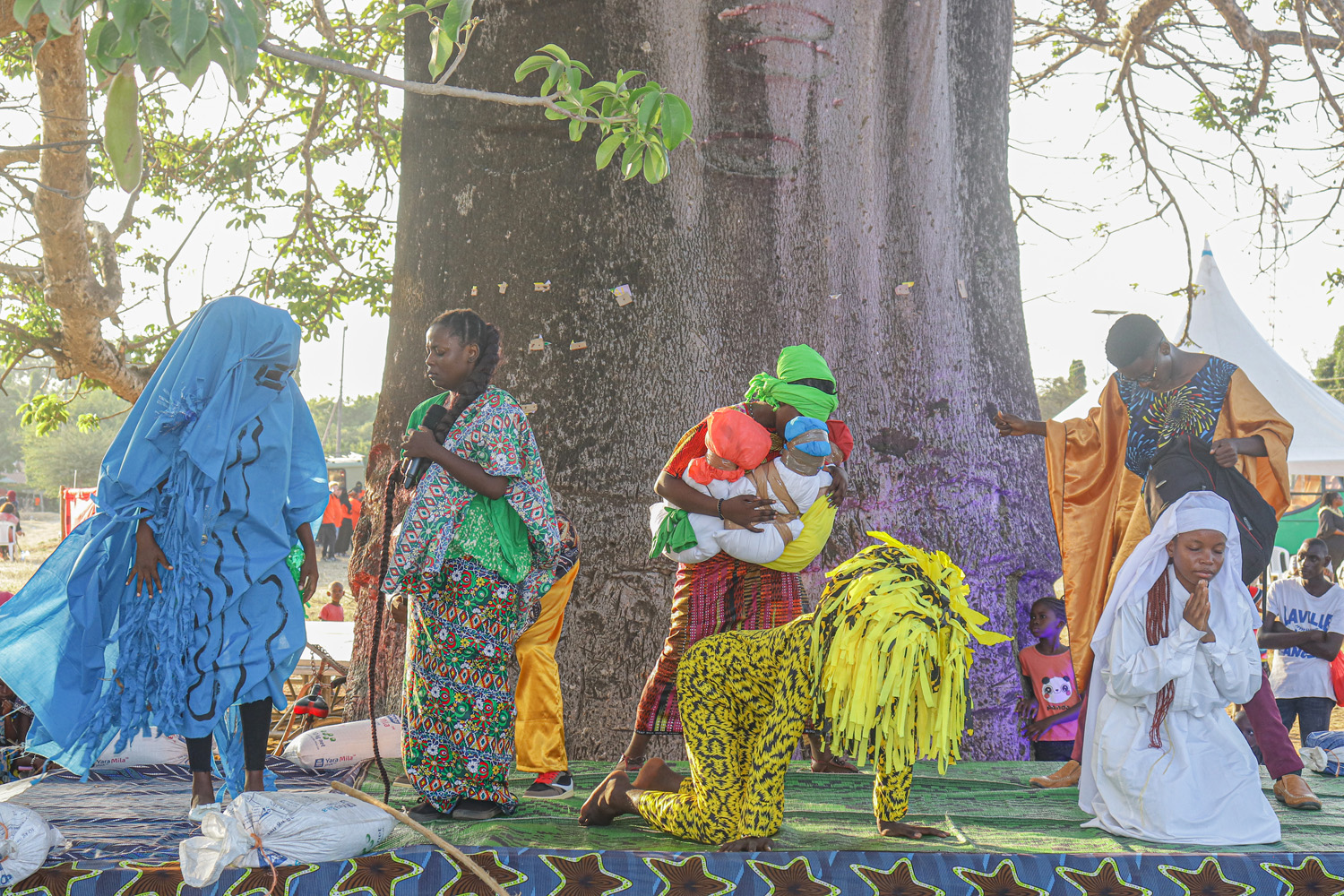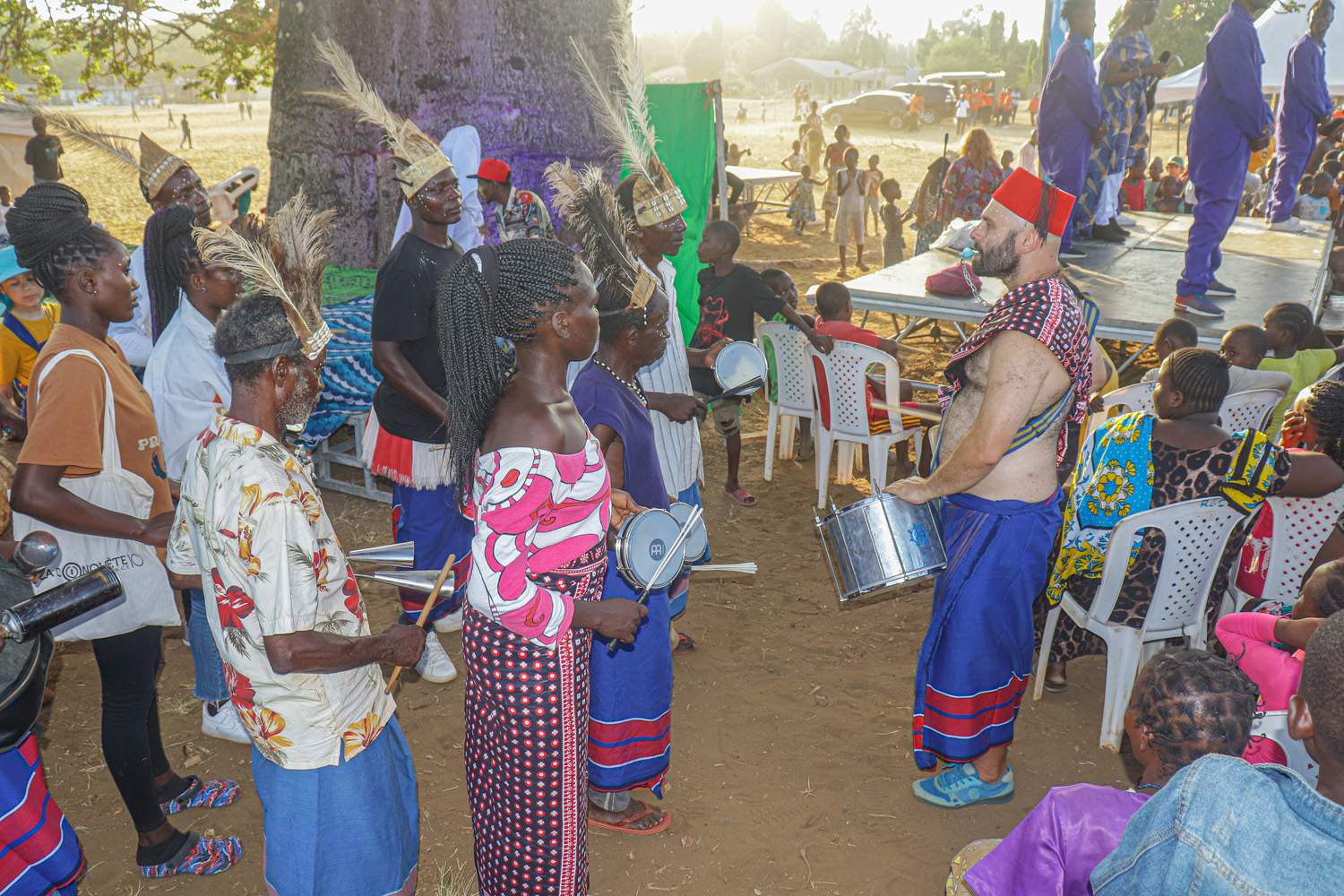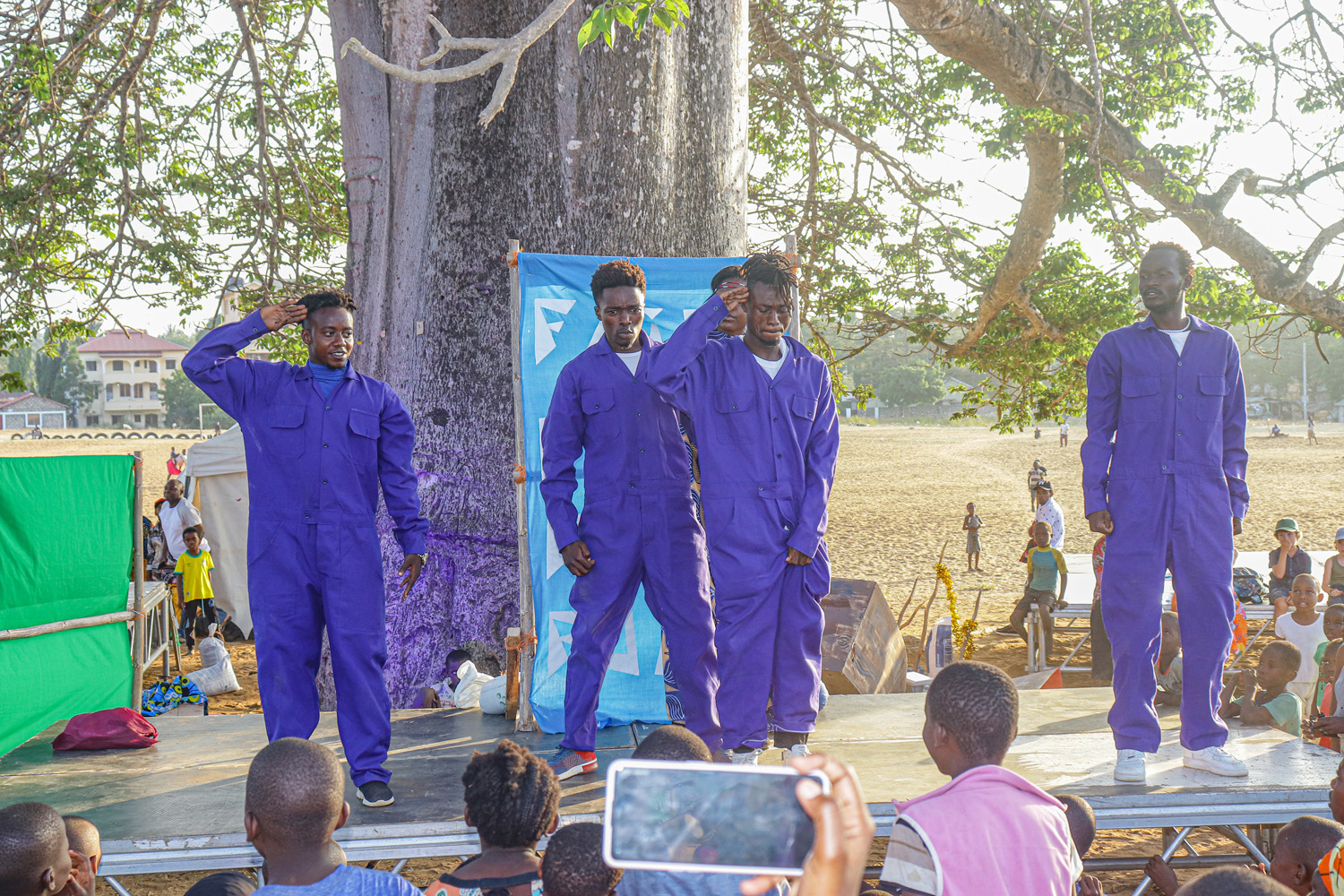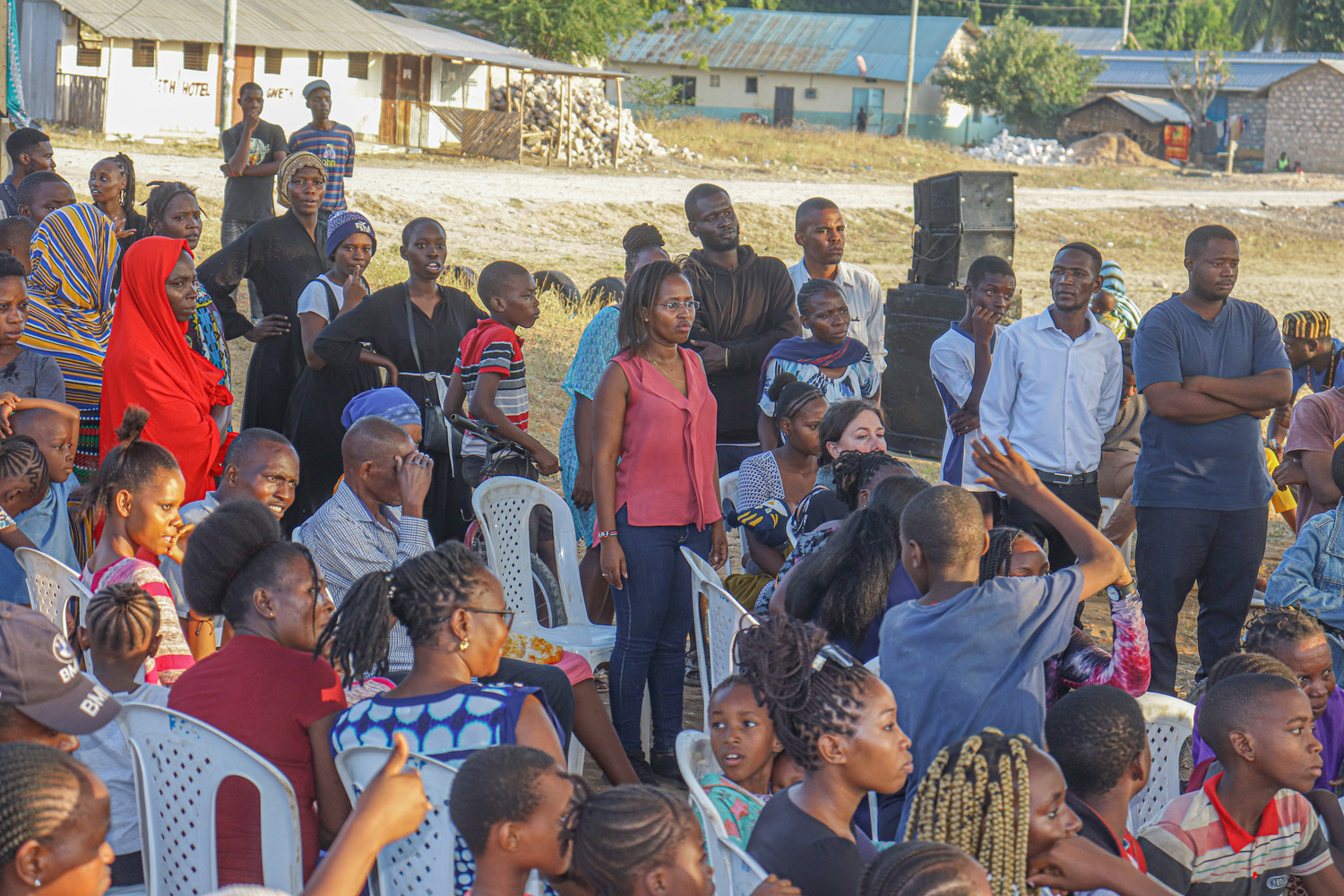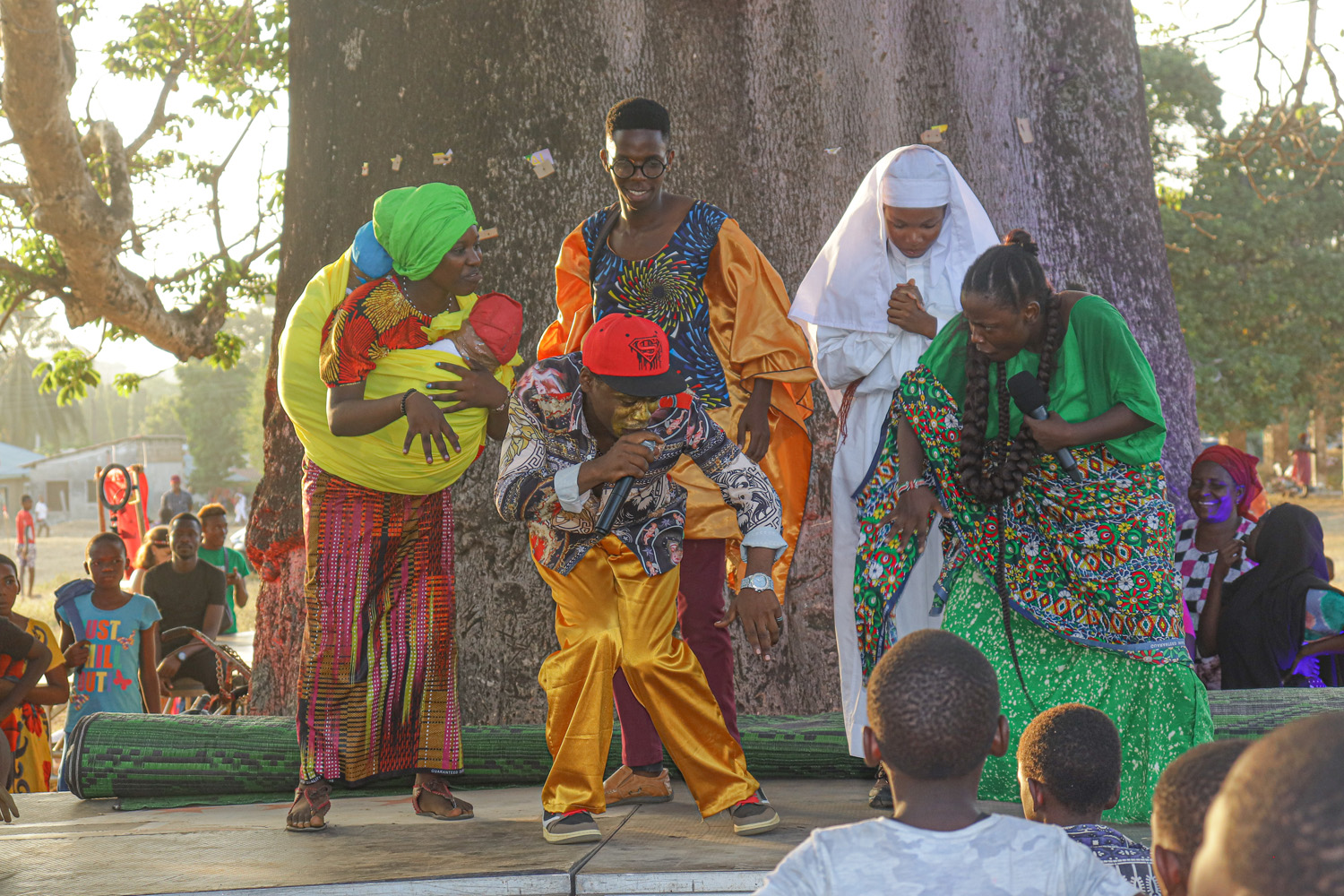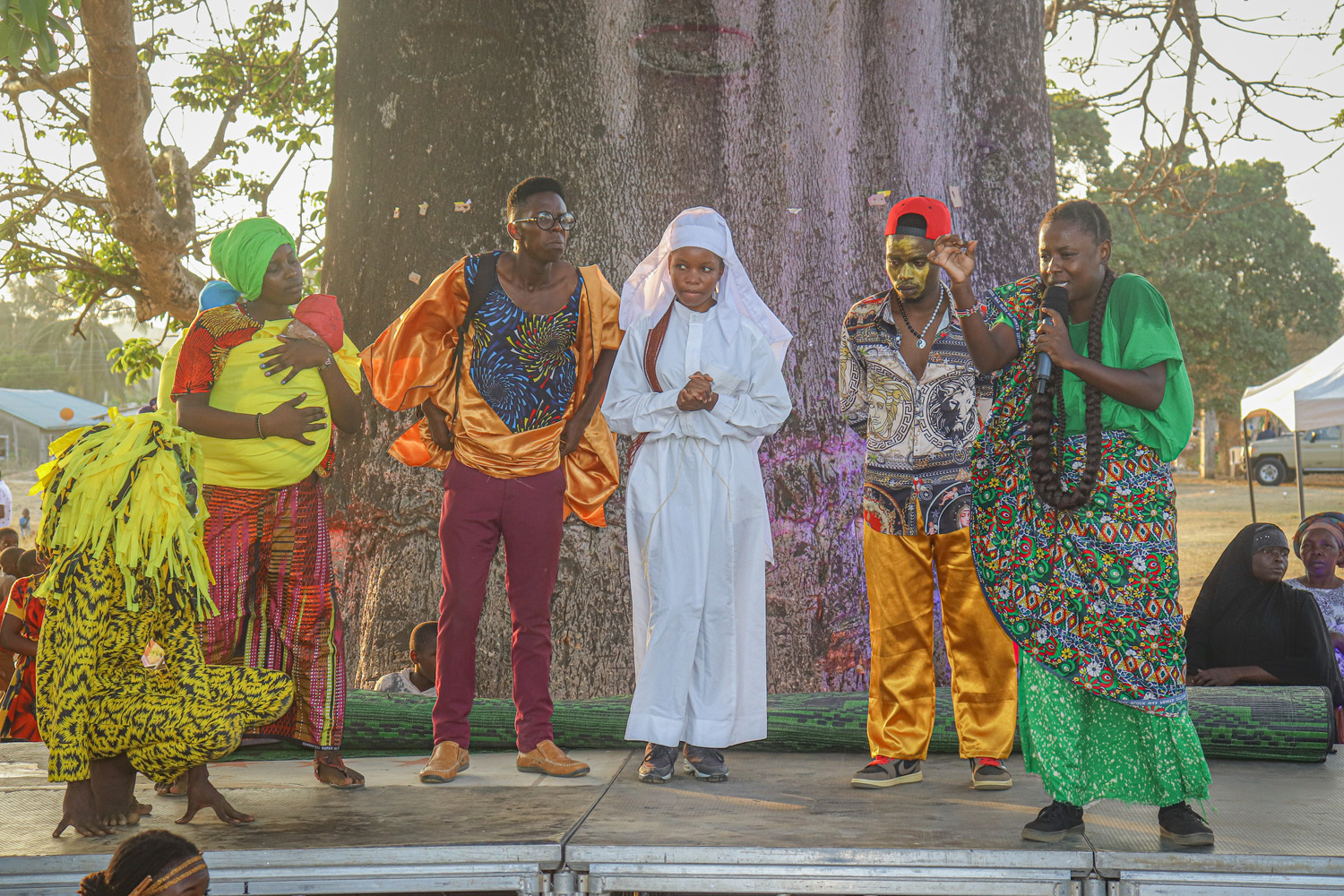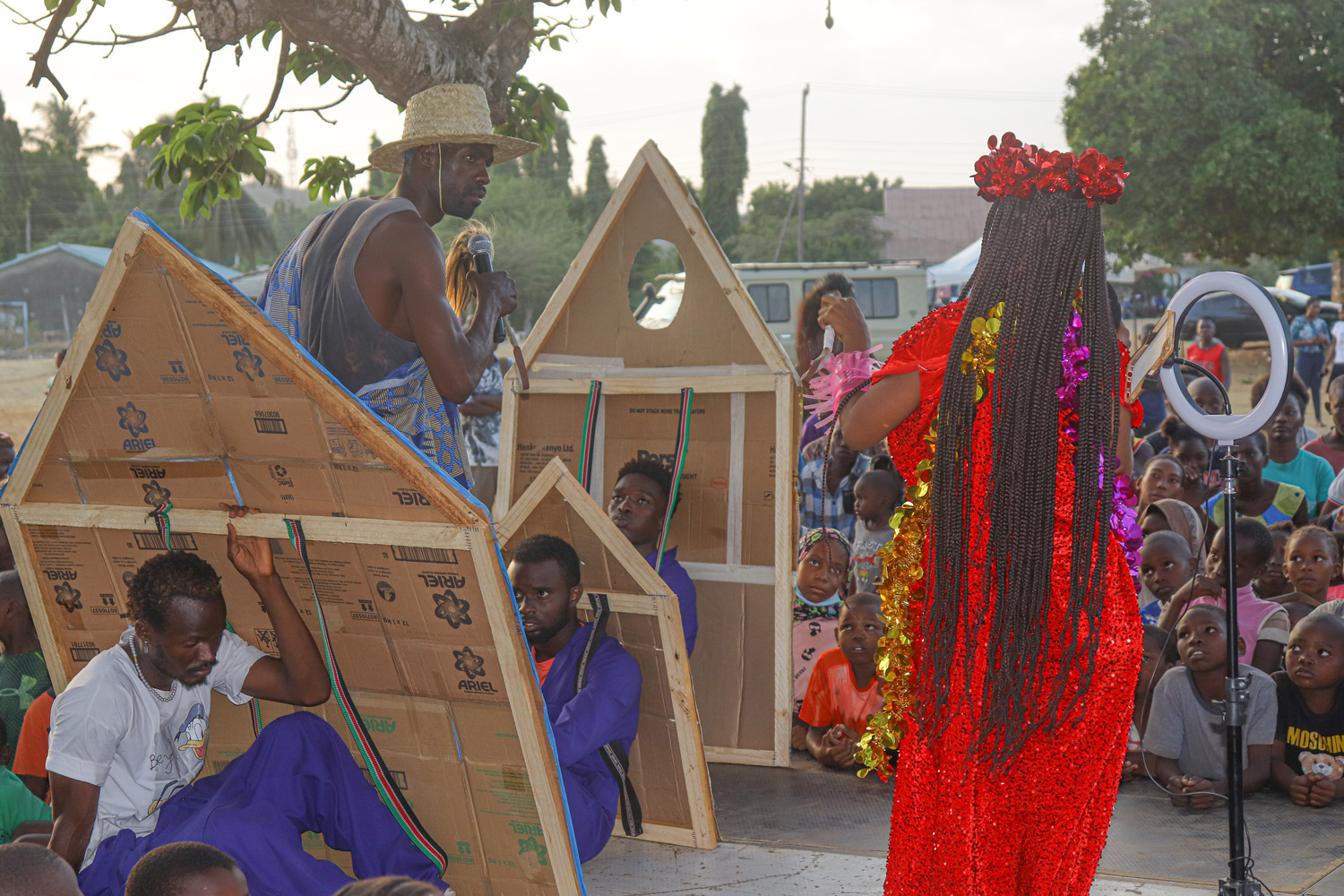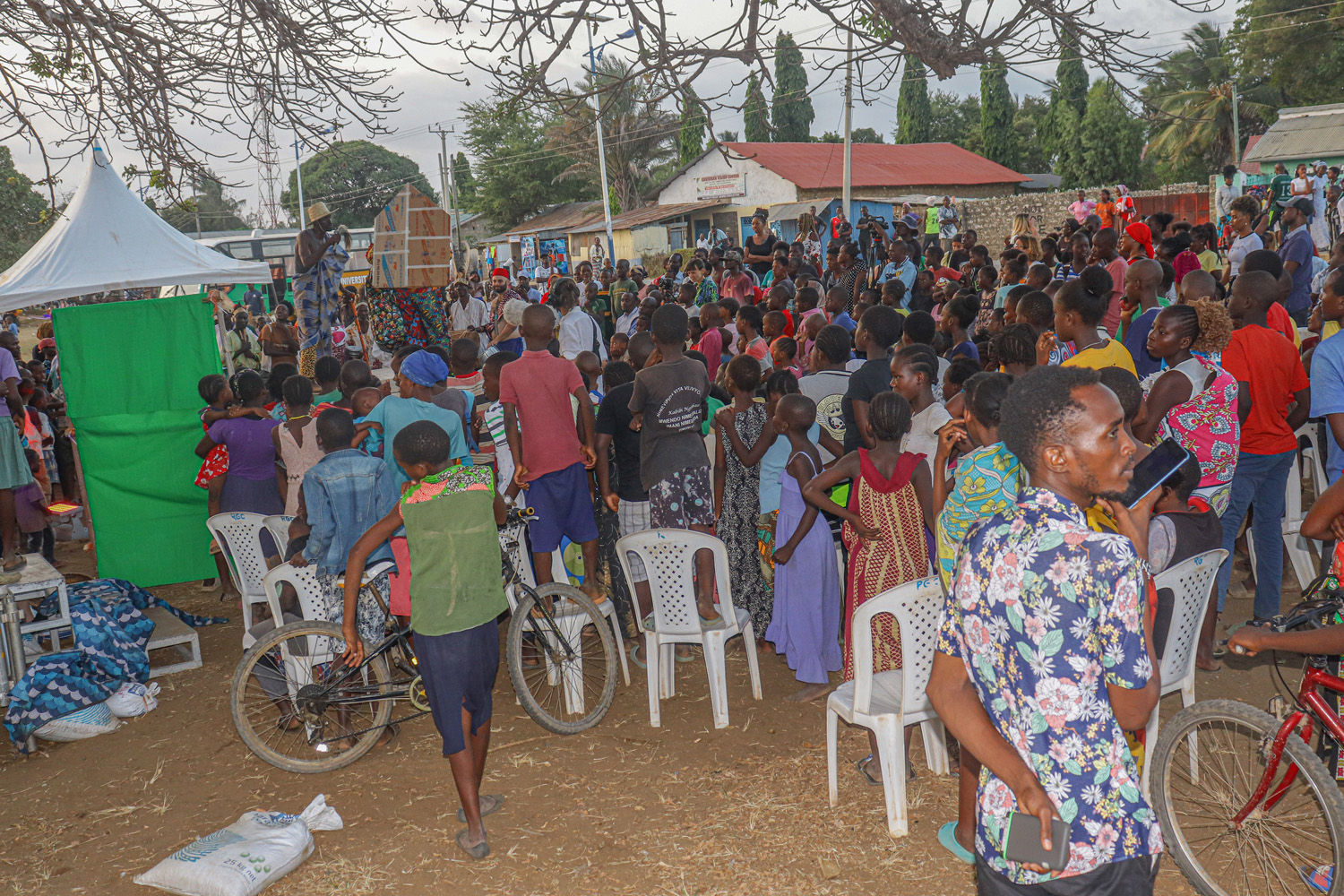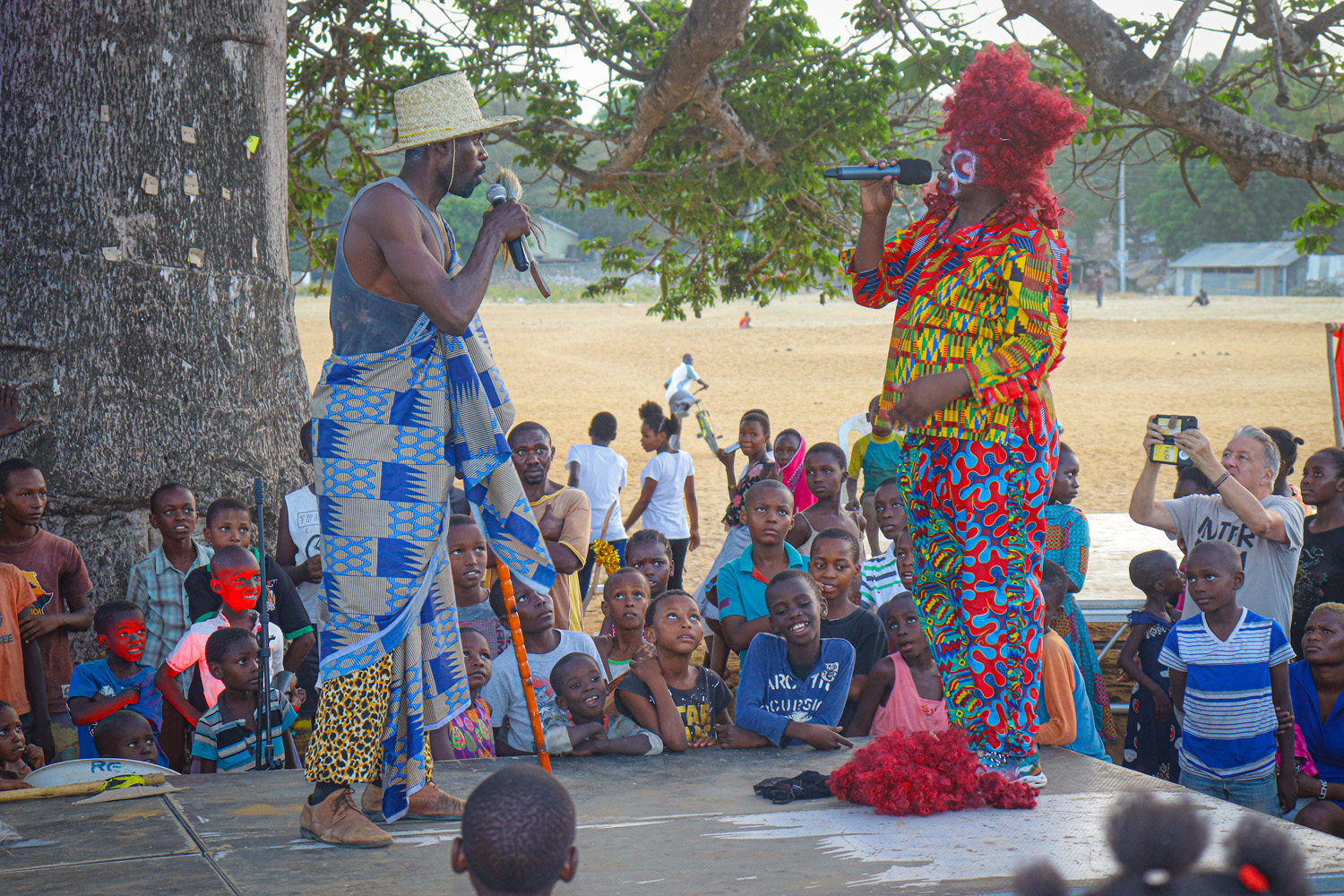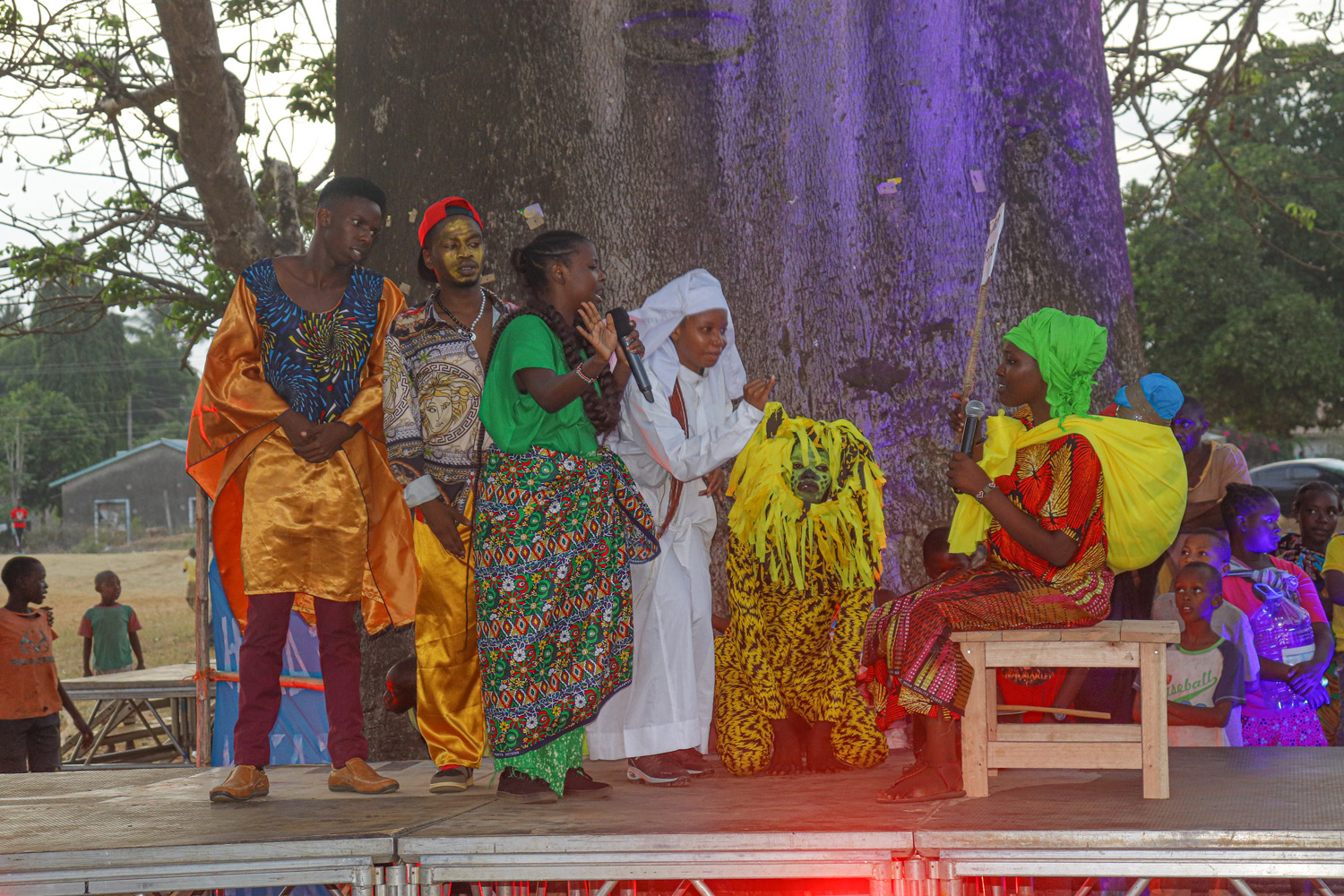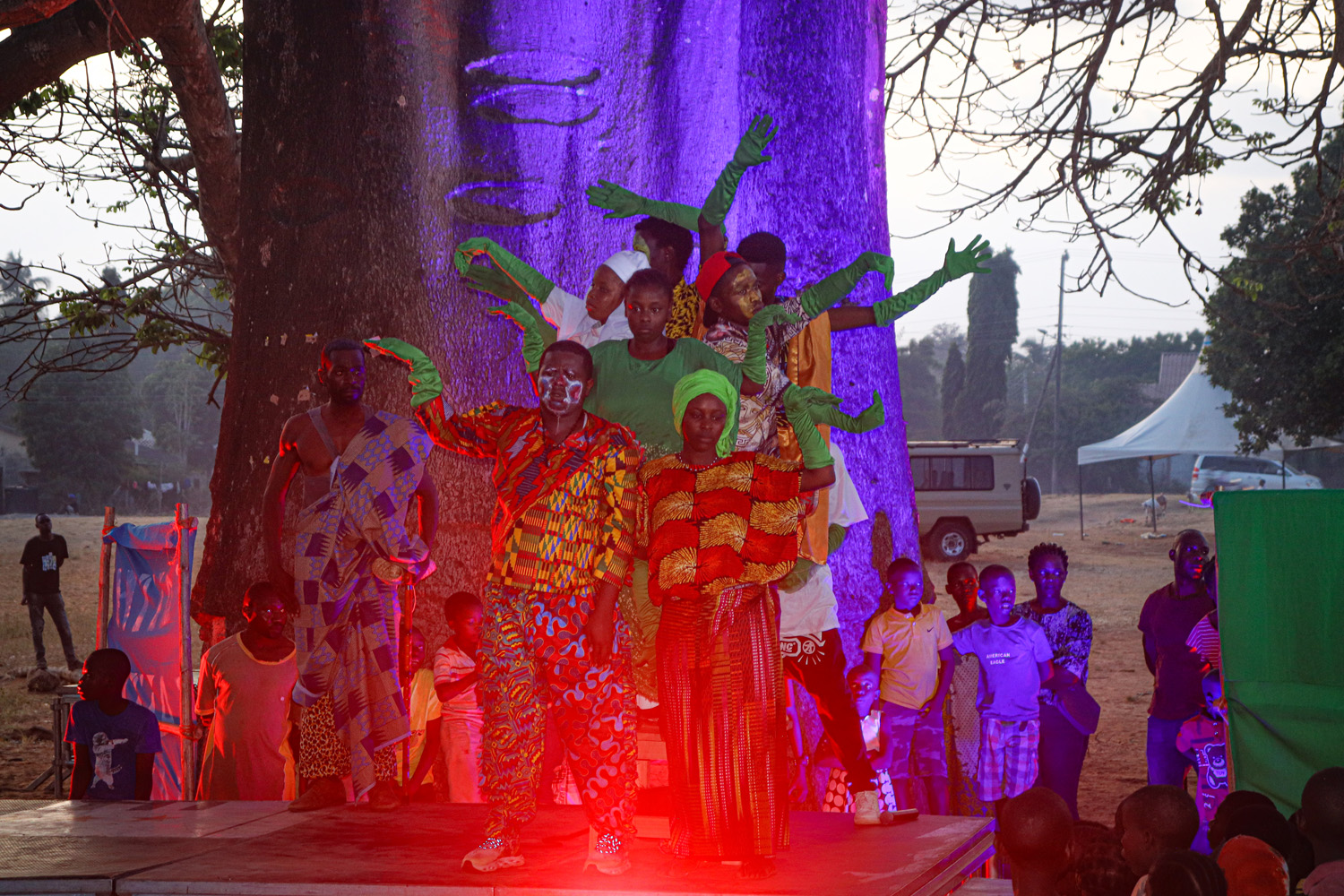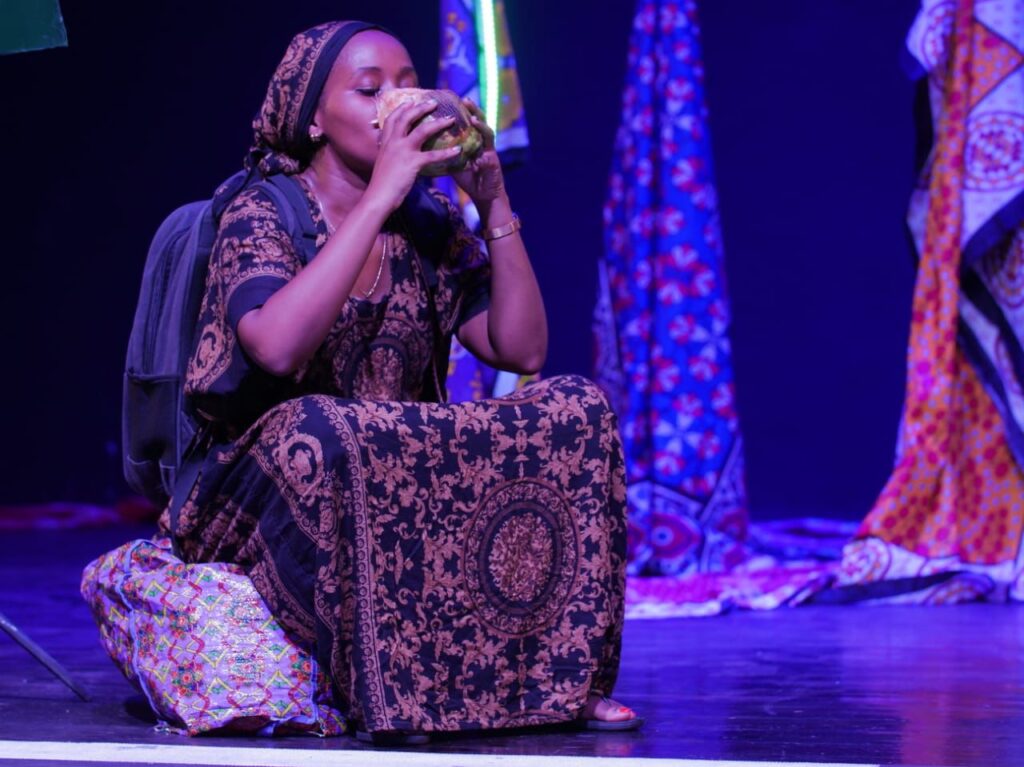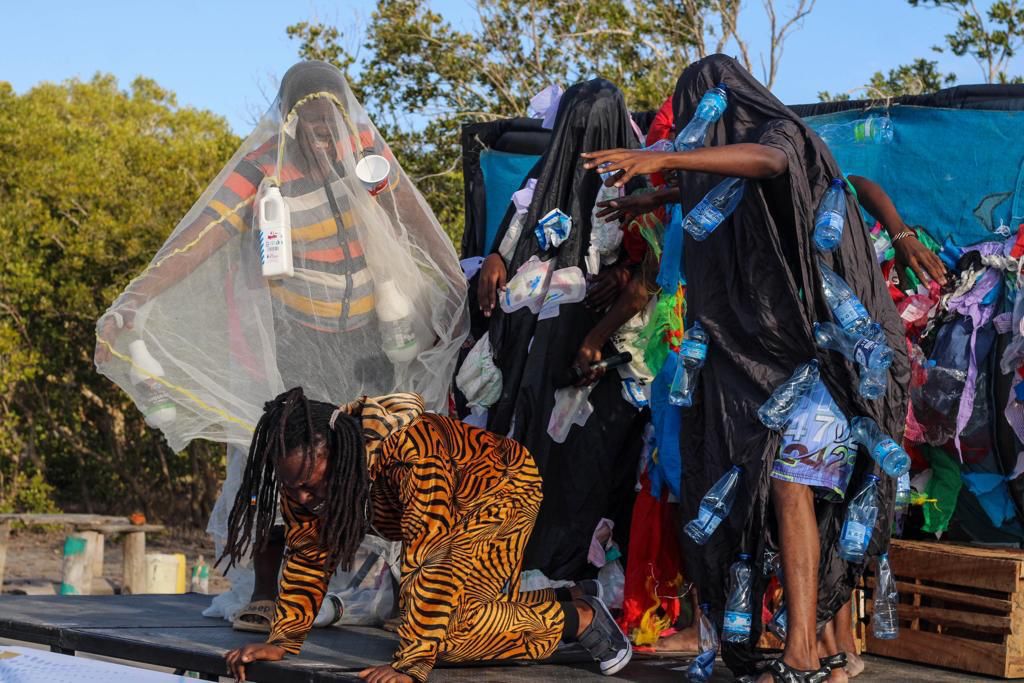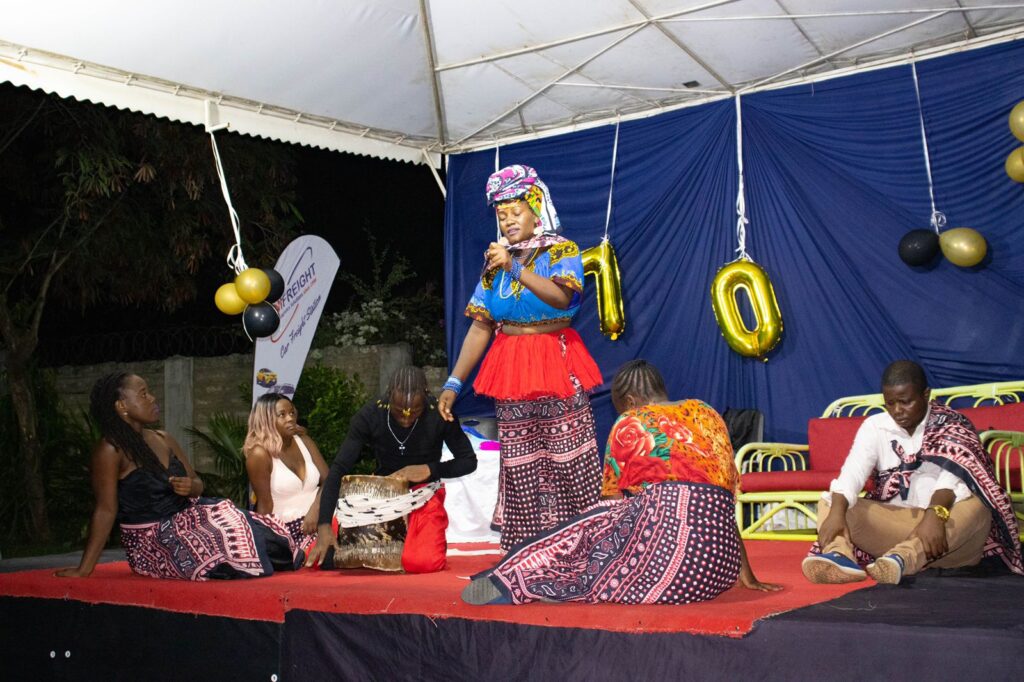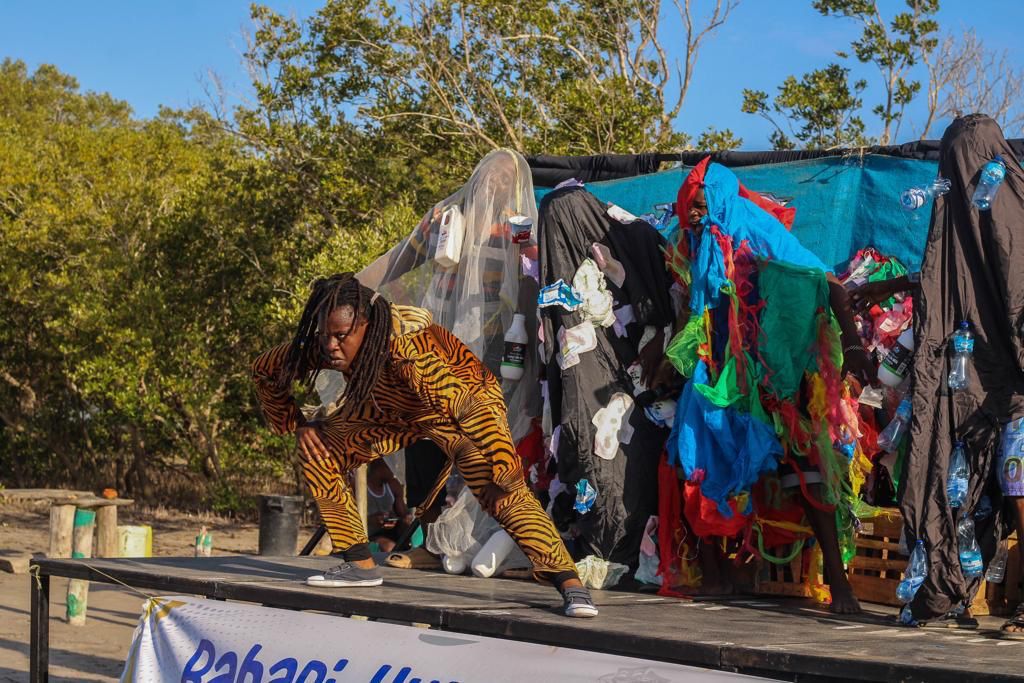„Three Boats“
In Kilifi one of the main aims of the 3rd edition of DUOS Festival was to organize Community Theatre that accommodated work of 3 DUOS. Caroline Ngorobi and Justyna Celeda (Theatre DUO) worked on a script and dramaturgy of the play that tell a story of a King who passes his power to 3 daughters, who present 3 different types of governance.
A political fairytale, Inspired by Shakespeare’s King Lear and the non-hierarchical leadership in Rojava. Caroline and Justyna borrowed inspiration from their cultures and experiences – Polish and Kenyan – to explore community and leadership. The play fuses music, dance and drama to tell this compelling story on leadership, family and culture. The participatory theater play engages communities to interrogate and share their ‘ideal world’.
The king is old and is retiring. He would like to pass the throne and leadership to one of his daughters, specifically the one who loves him the most. This does not sit well with the people. They want the king to continue ruling, especially the joker who feels the king is leaving them at a time when the country is not stable. Despite the plea of the people to keep the king in power, he decides to retire and to mark the end of an era. He commands for the cutting of the communities sacred tree. A tree that is a source of unity for the community. The gods and the people are not happy. From the tree, he makes 3 boats for his daughters to travel to the land he has divided to them. His youngest daughter Love, who is his favourite openly expresses her disappointment in her father. She is cast out.
As the daughters take leadership in their various kingdoms, each of them explores a different style of leadership. Faith, in her fathers’ footsteps becomes a dictator and adopts a military kind leadership. She is harsh to her people and leads by order and command.
Hope, the second sister, is charming however very manipulative. She manipulates and controls her people, leading them via a digital platform. She does so with charm and smile and makes her people think she has their best interests at heart.
Love, the youngest daughter, adopts a non-hierarchical kind of leadership. She sees the best in people and allows her people to make decisions on how they would like to be led. She works with each of their strength to come up with a kingdom that has no centralized leadership.
The play borrows heavily on Kenyan cultures around family relations, music, death ceremonies and the connection with the spirits as seen when the king is haunted for cutting the sacred tree.
The play also borrow a lot from fairy tale and non-realistic style as seen in the jokers character who carries heavy themes in a very entertaining and clownish character, costume and props…a style brought in by the Polish co director, Justyna.
The language of the play is a mix of Swahili, English and the local Mijikenda language. This is a common characteristic of the way Kenyans speak and mix language in conversation.
In its participatory theatre form, the play invites the audience to participate in the play by helping Love create an ‘ideal world’. The audience give their suggestions of how an ideal world should look like.
Characters:
King – Emmanuel Lucky Kiti
Joker- John Mumba
Love- Mary Favour
Hope- Fedys Nazi
Faith- Sheila Biyumbe
Students participating : Shaban Juma, John Kisangau, Victor Nyang’or, Bridgit Mwendwa, Stella Wambua, Lucy Muhonja, Marvin Njoroge, Caleb Mutai, Kennedy Rapemo
Dancers: Said Juma, Dominic Tumaini, Mtsonga Dennis, Victor Baraka
Caroline Ngorobi
Caroline Ngorobi is a theatre producer, director and performer based in Mombasa Kenya with over 8 years’ experience as a producer. She is an ISPA (International Society for Performing Arts )Fellow 2023. She is the founder of Jukwaa Arts Productions – A creative greenhouse which voices social issues through creation and presentation of performing and visual arts based in Mombasa, founded in 2015. Her work fuses drama, movement, music, and poetry. She creates work from observation and human stories. She explores the subjects of art as education, identity, love, gender, environment, and taboos, and their intersection with emerging and popular culture. Her work is presented in both theatre and non theatre spaces, with a special love for street art.
Justyna Celeda


